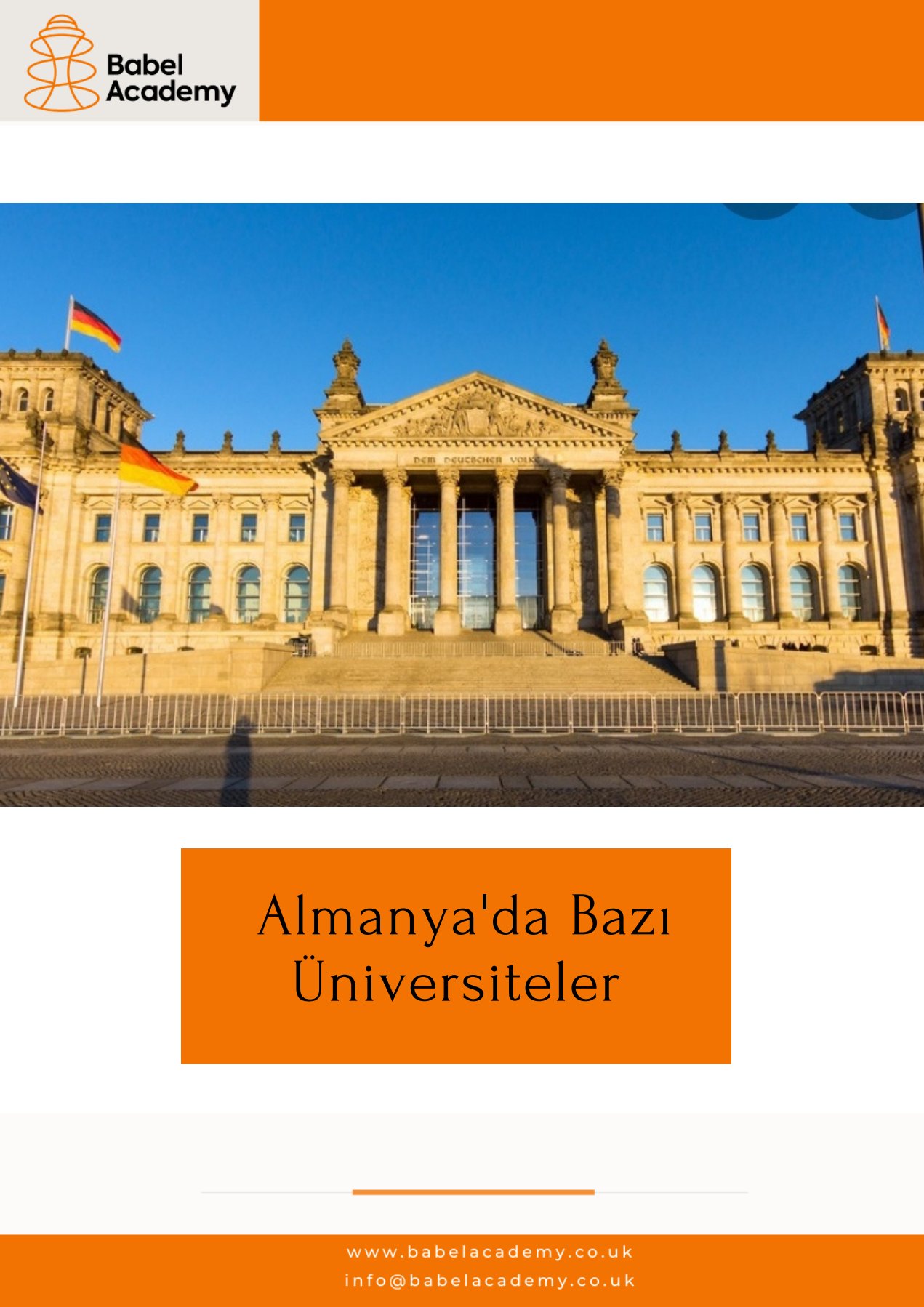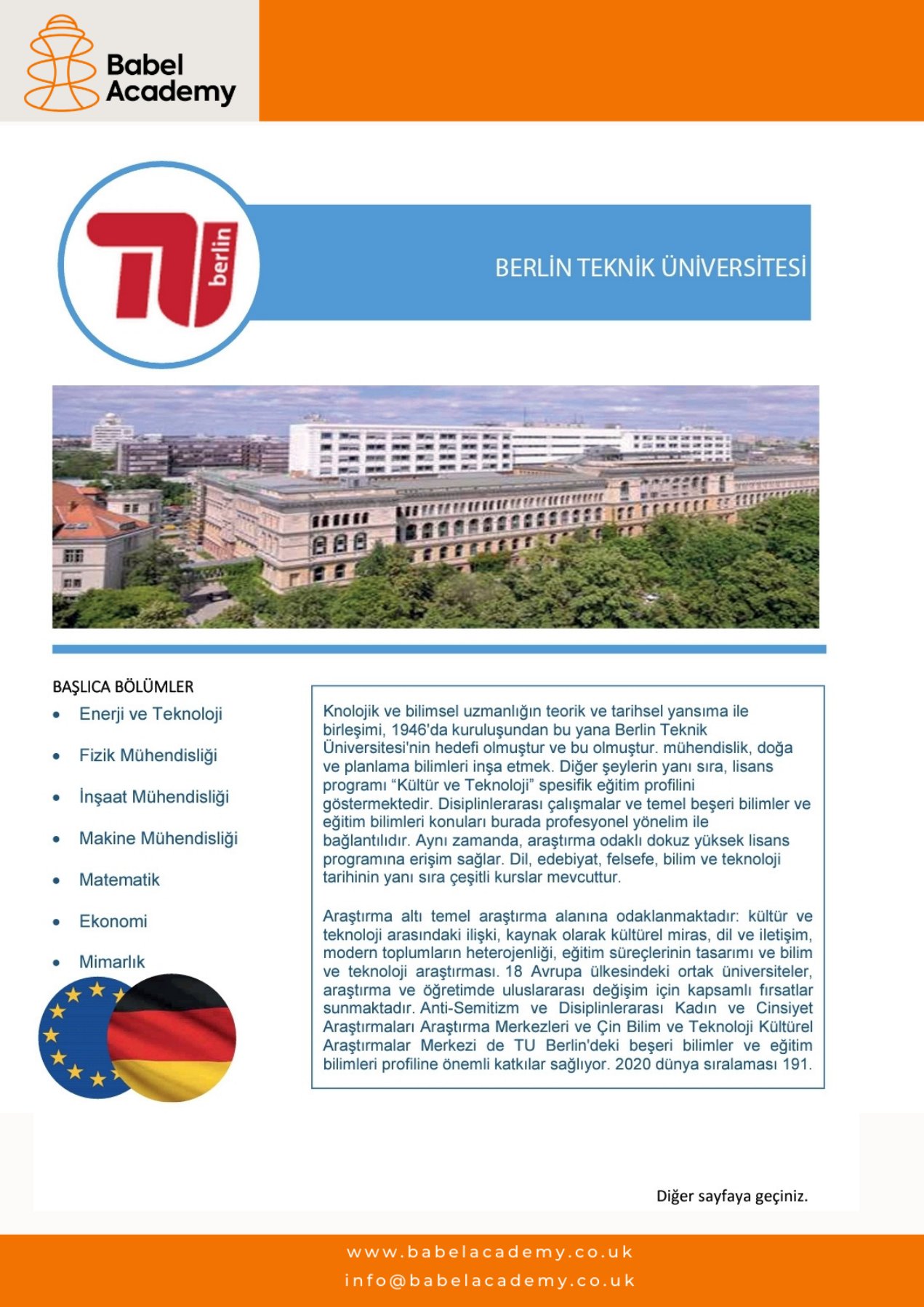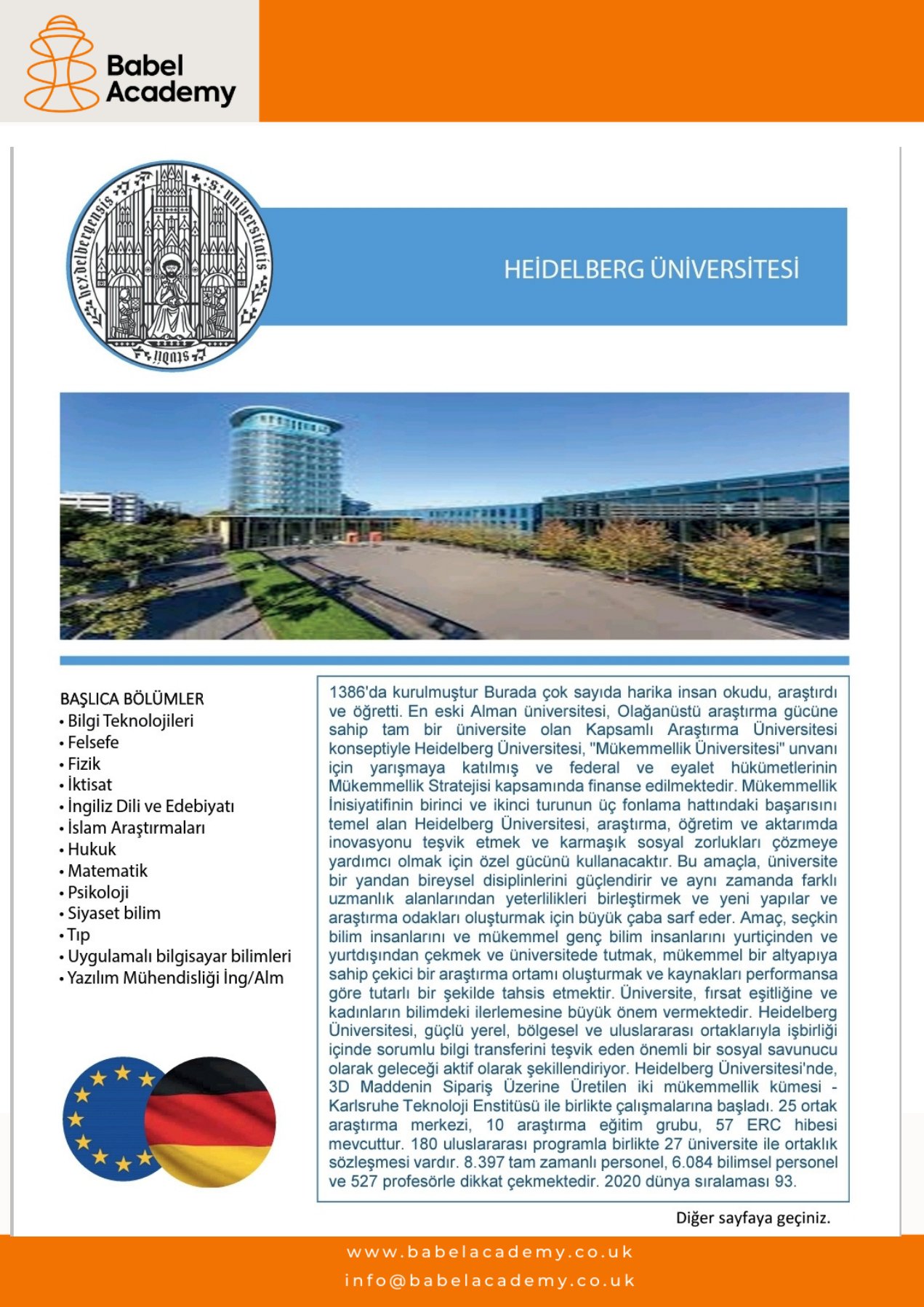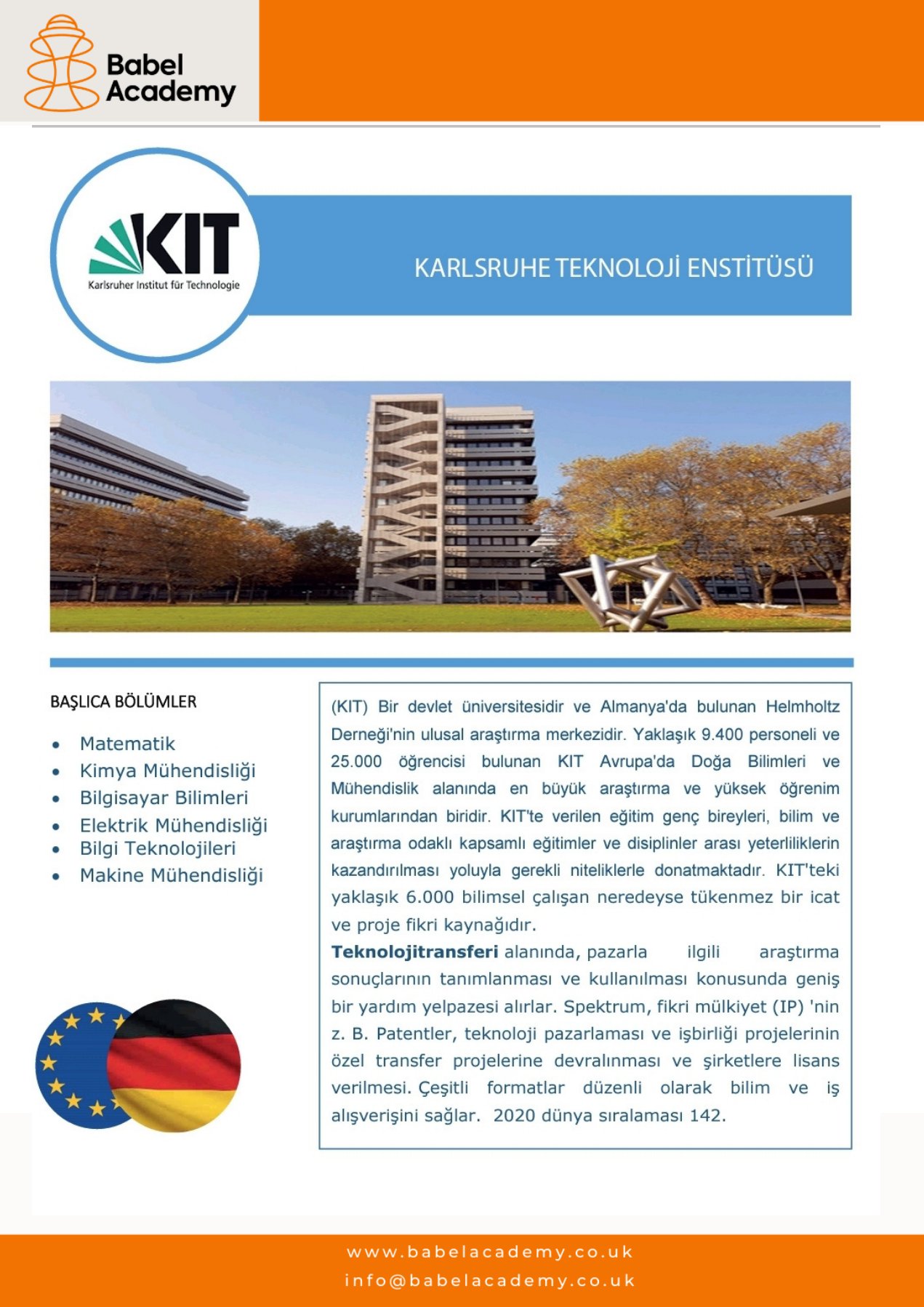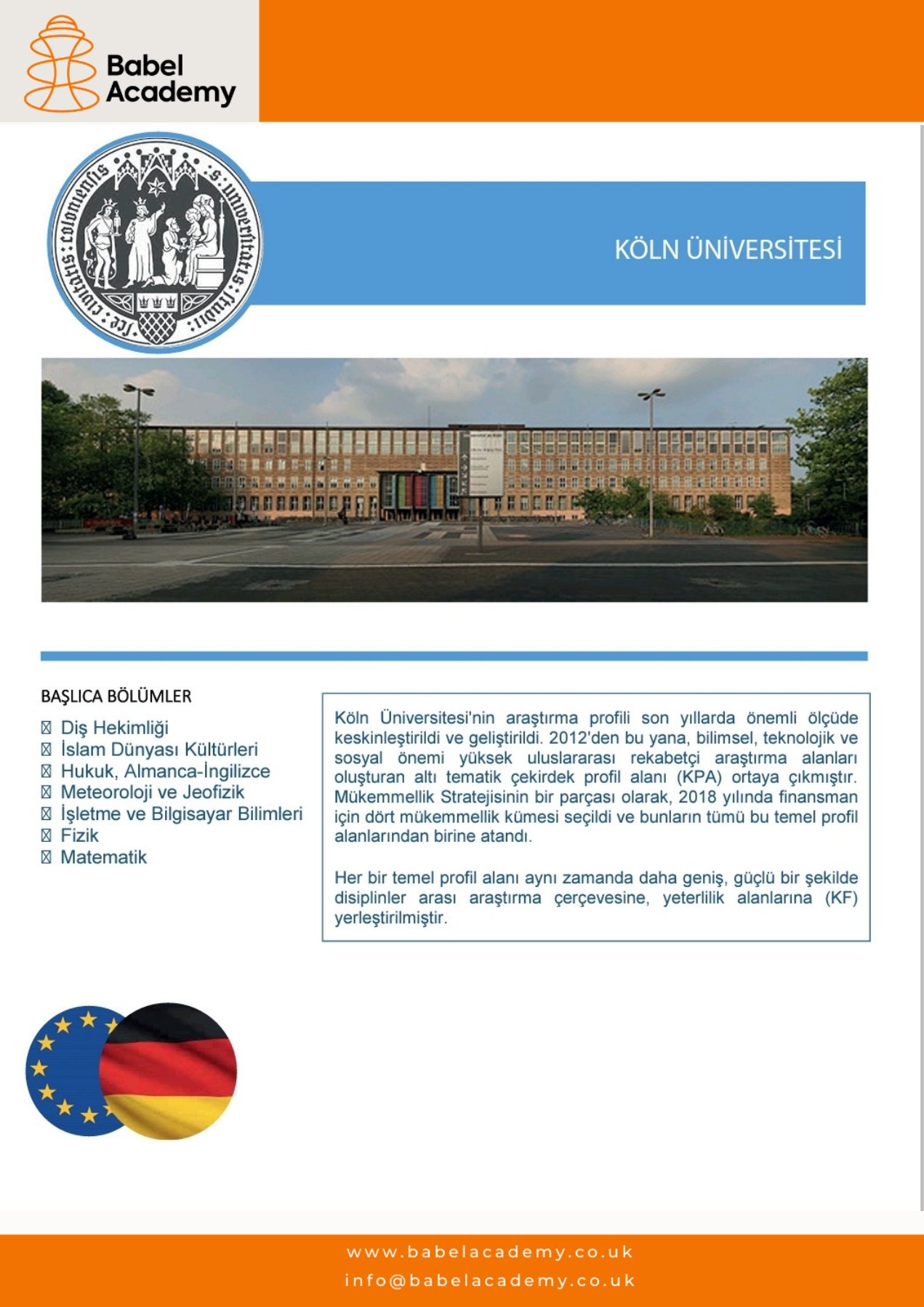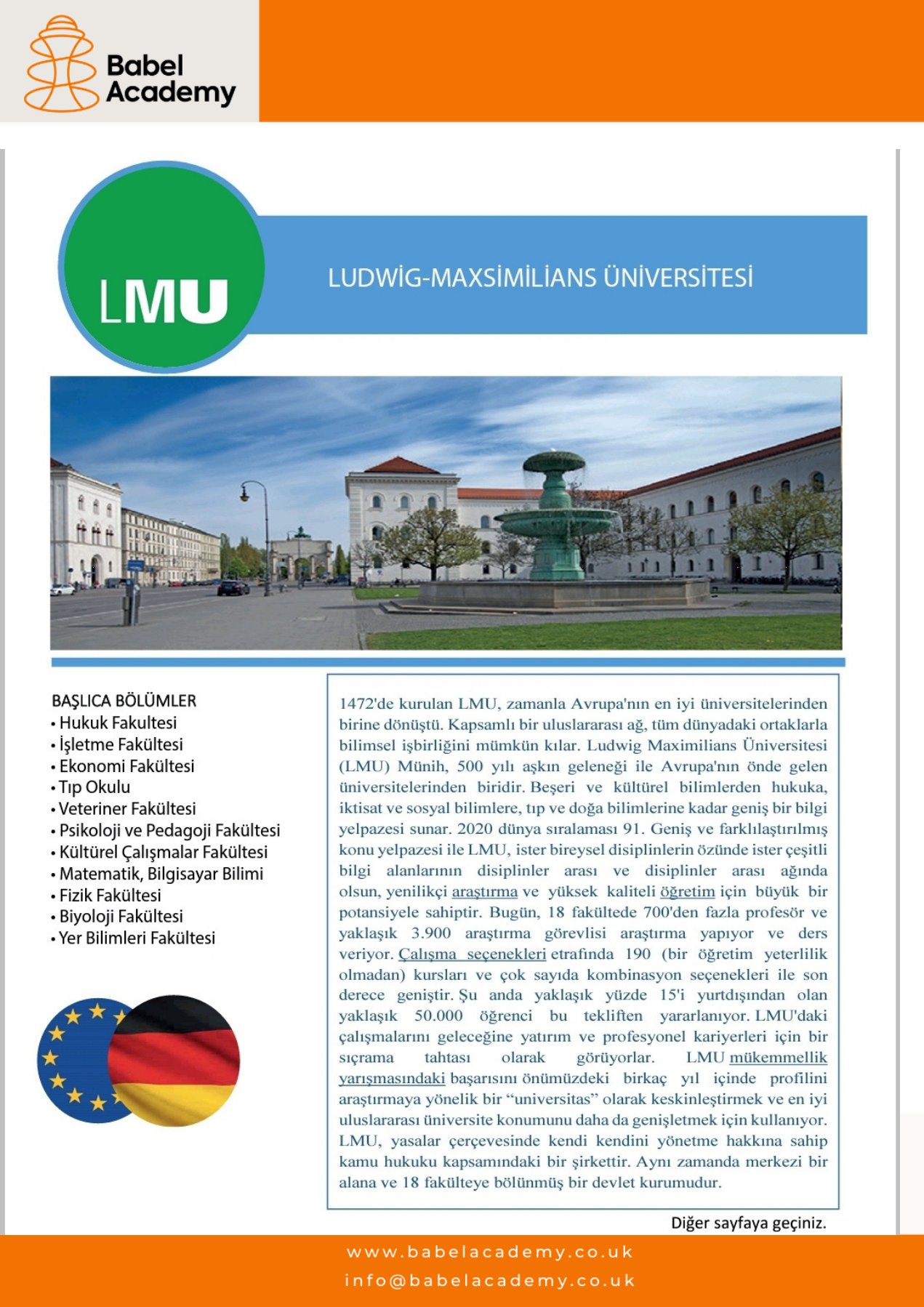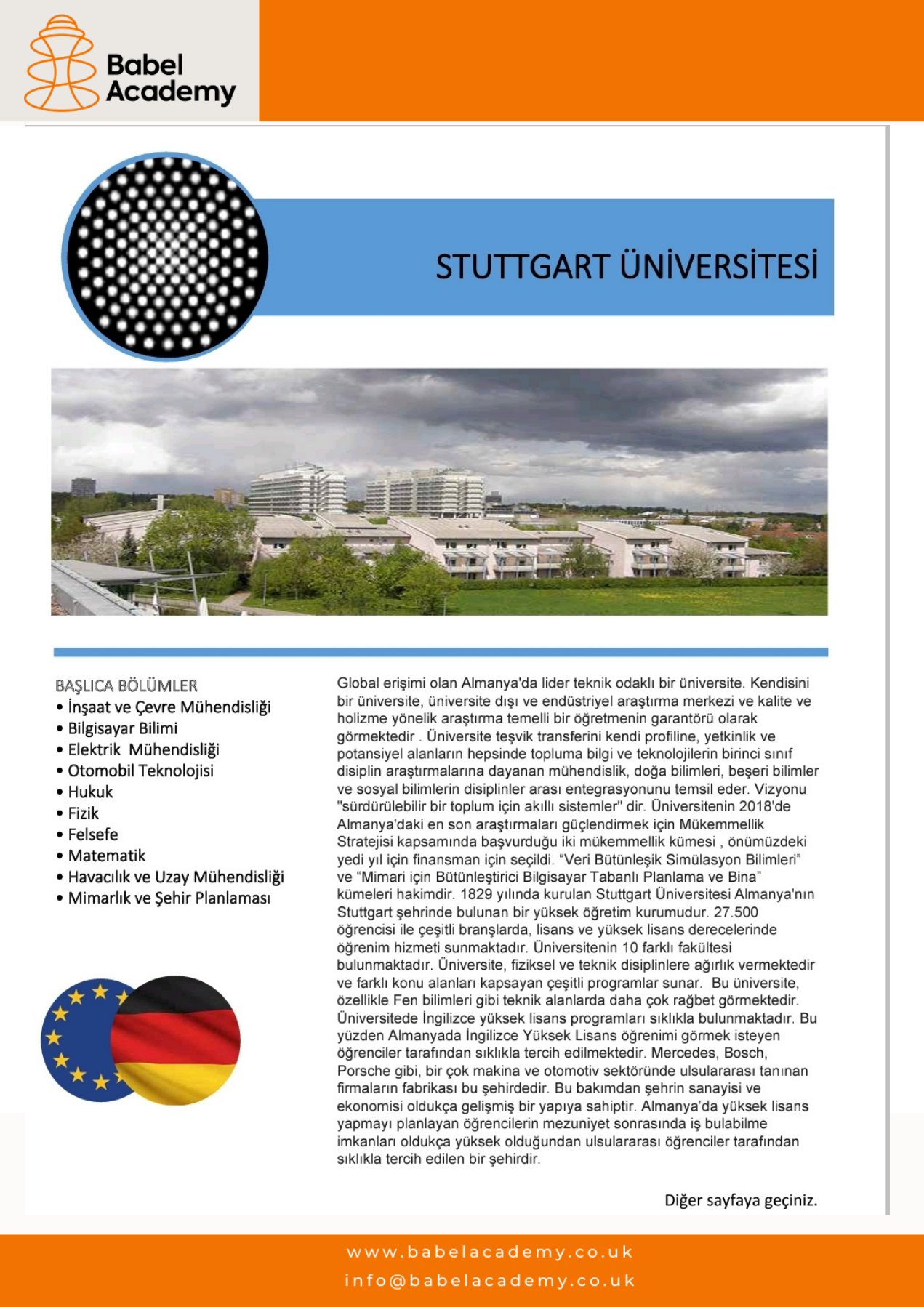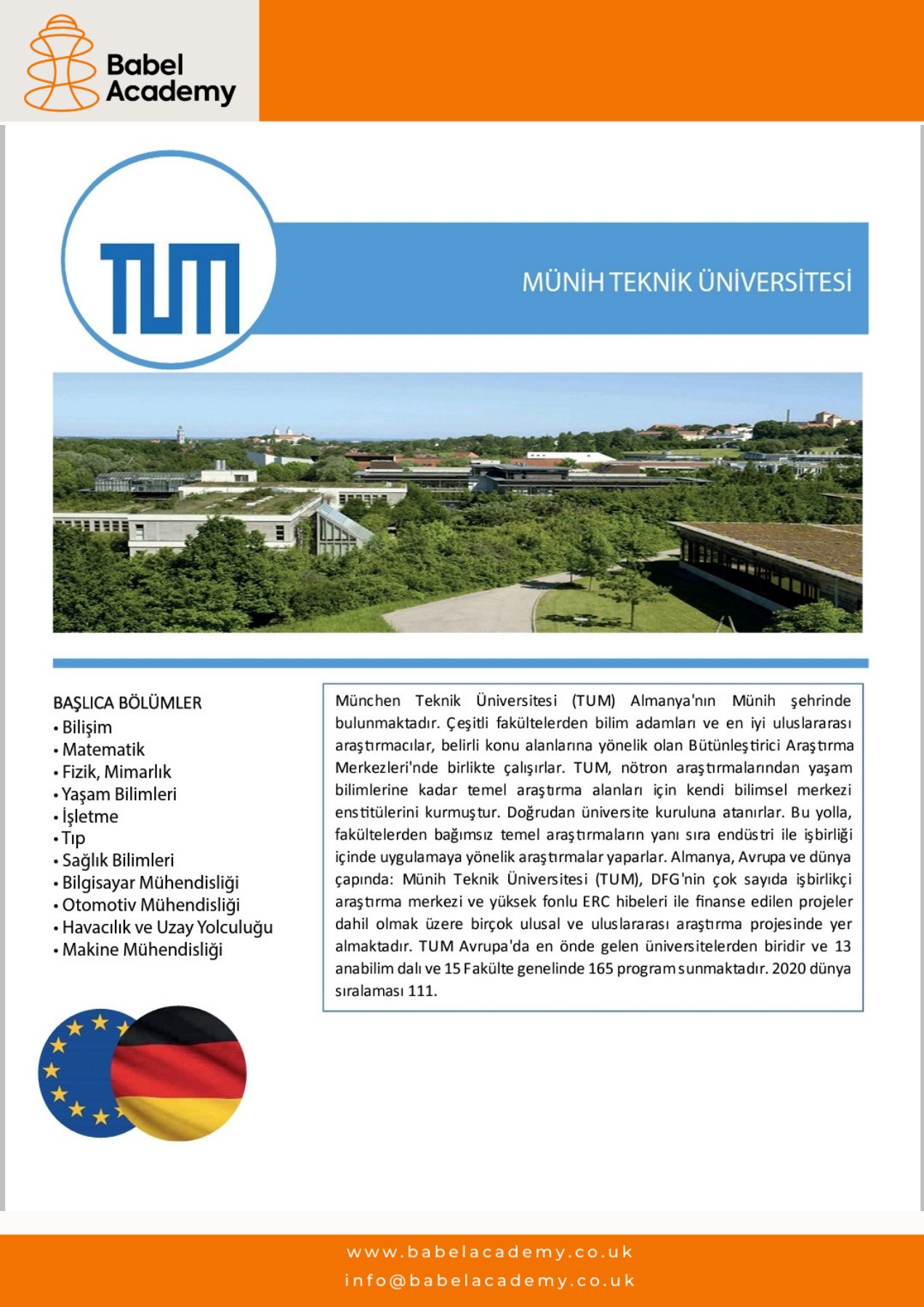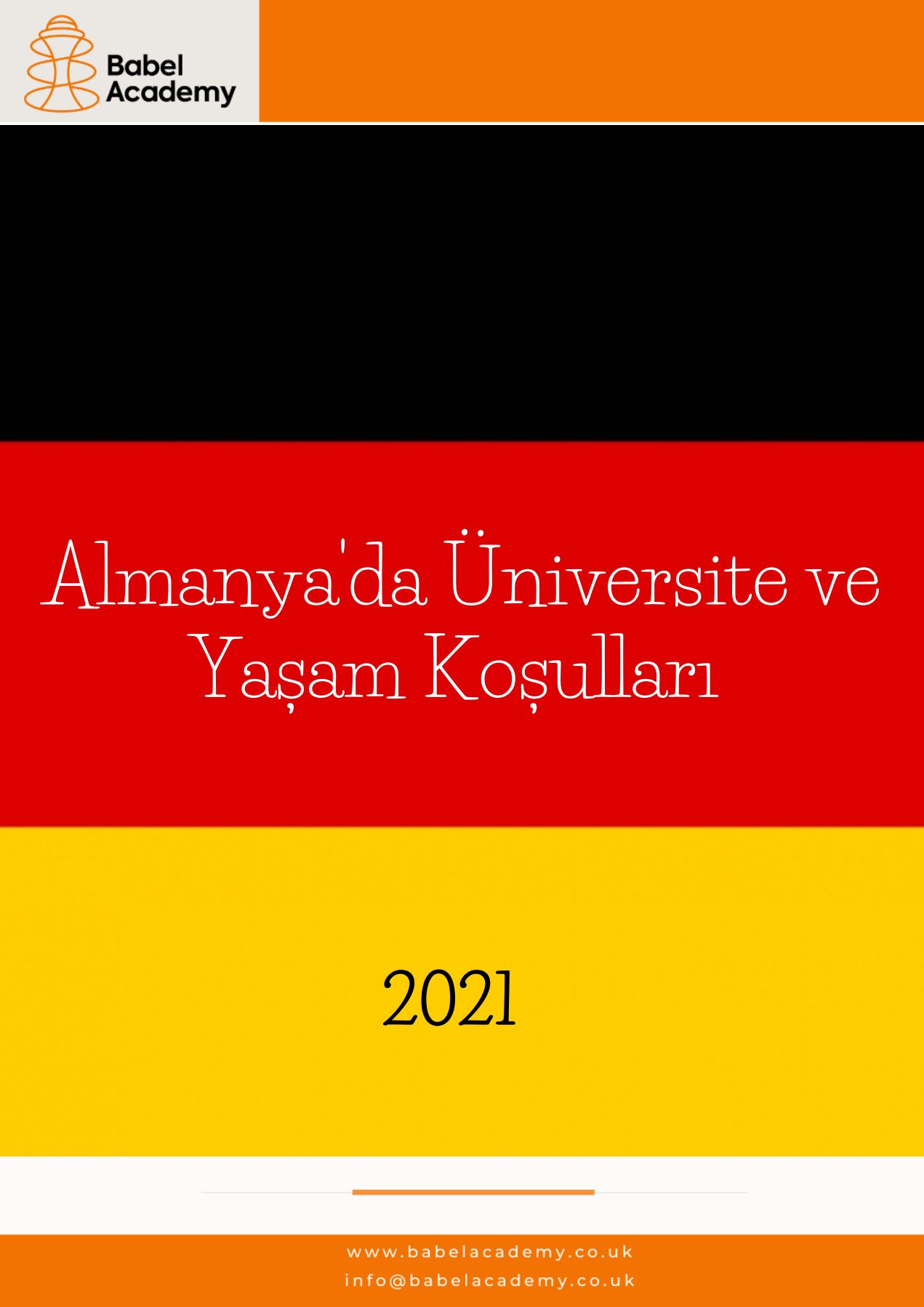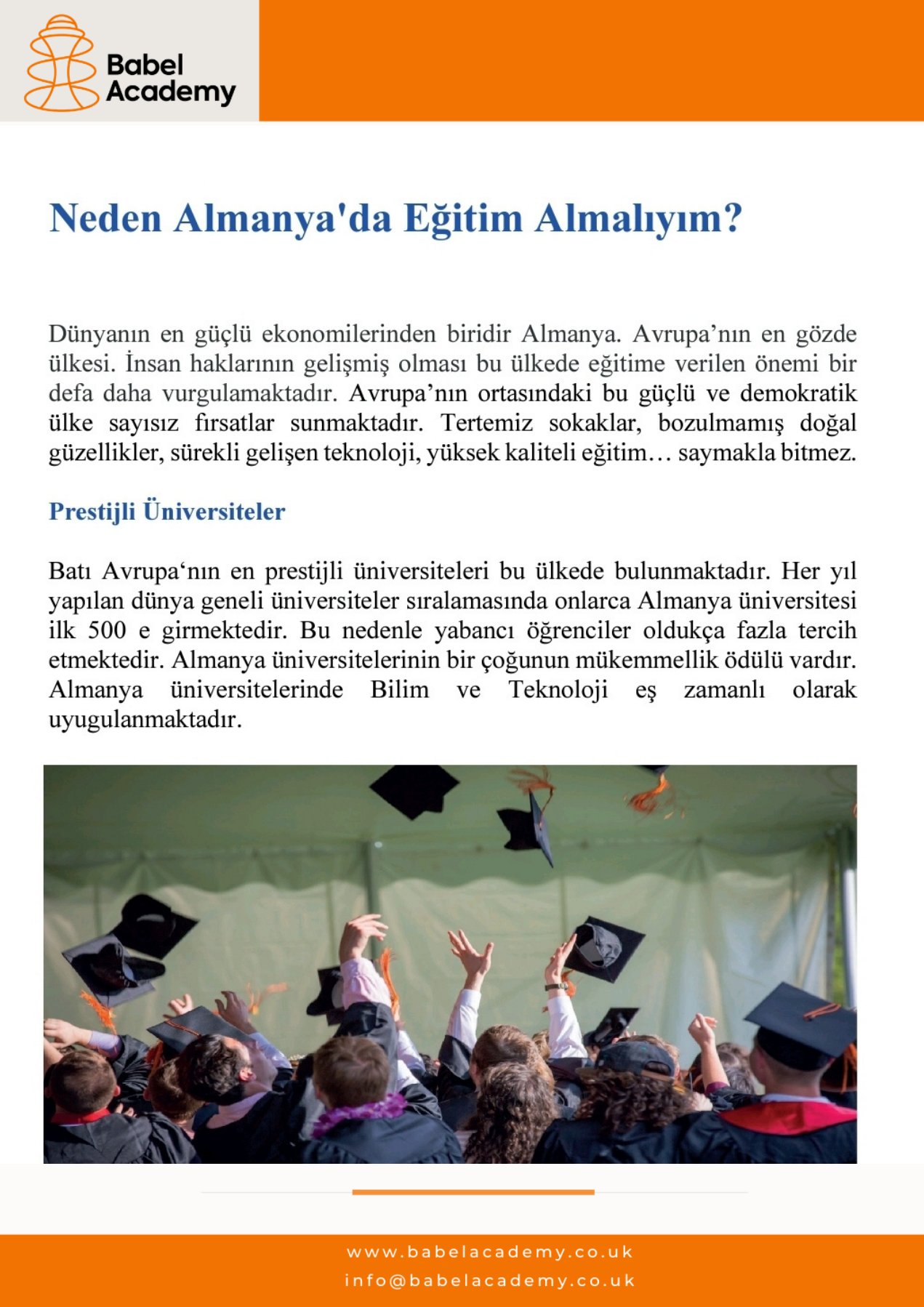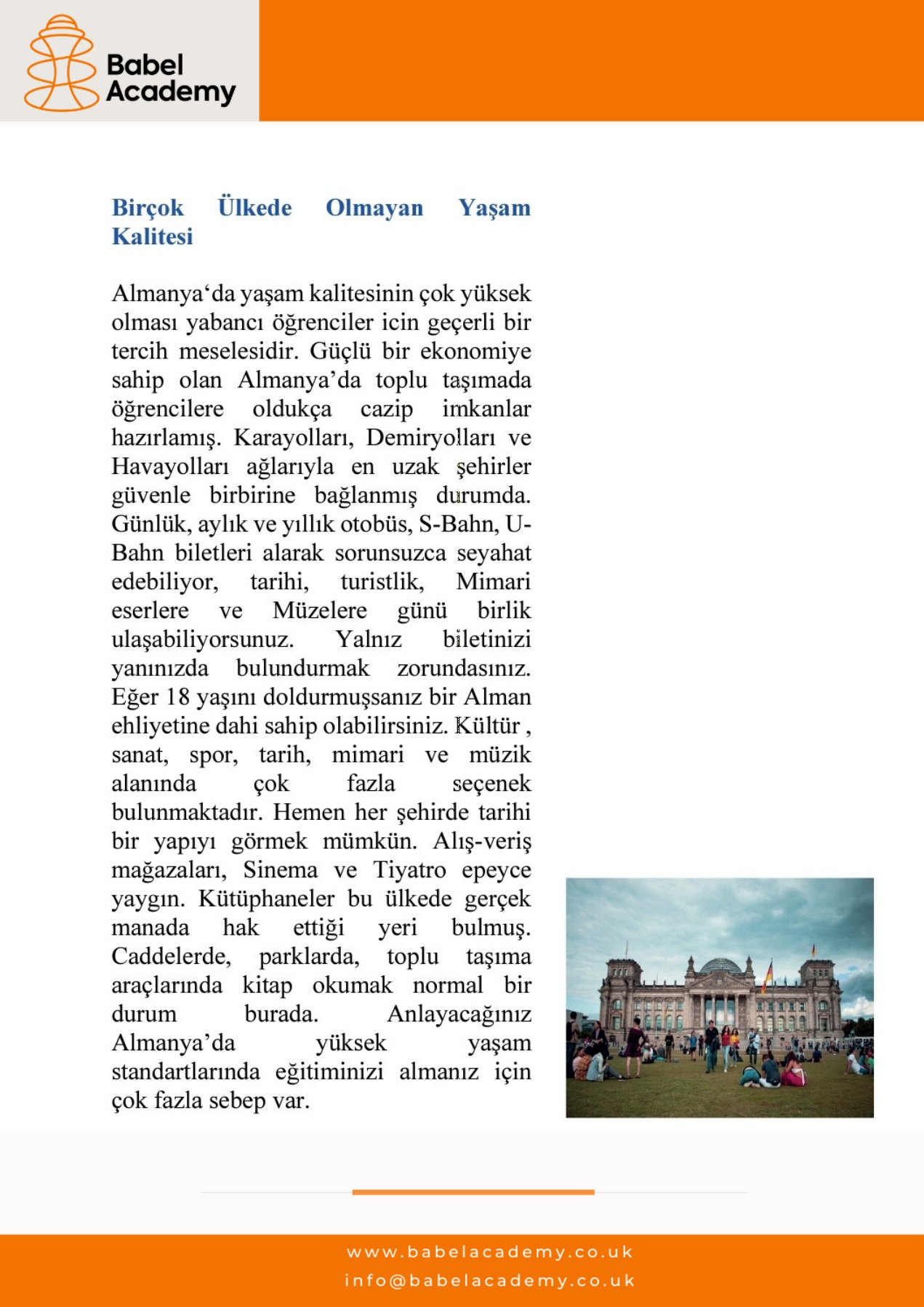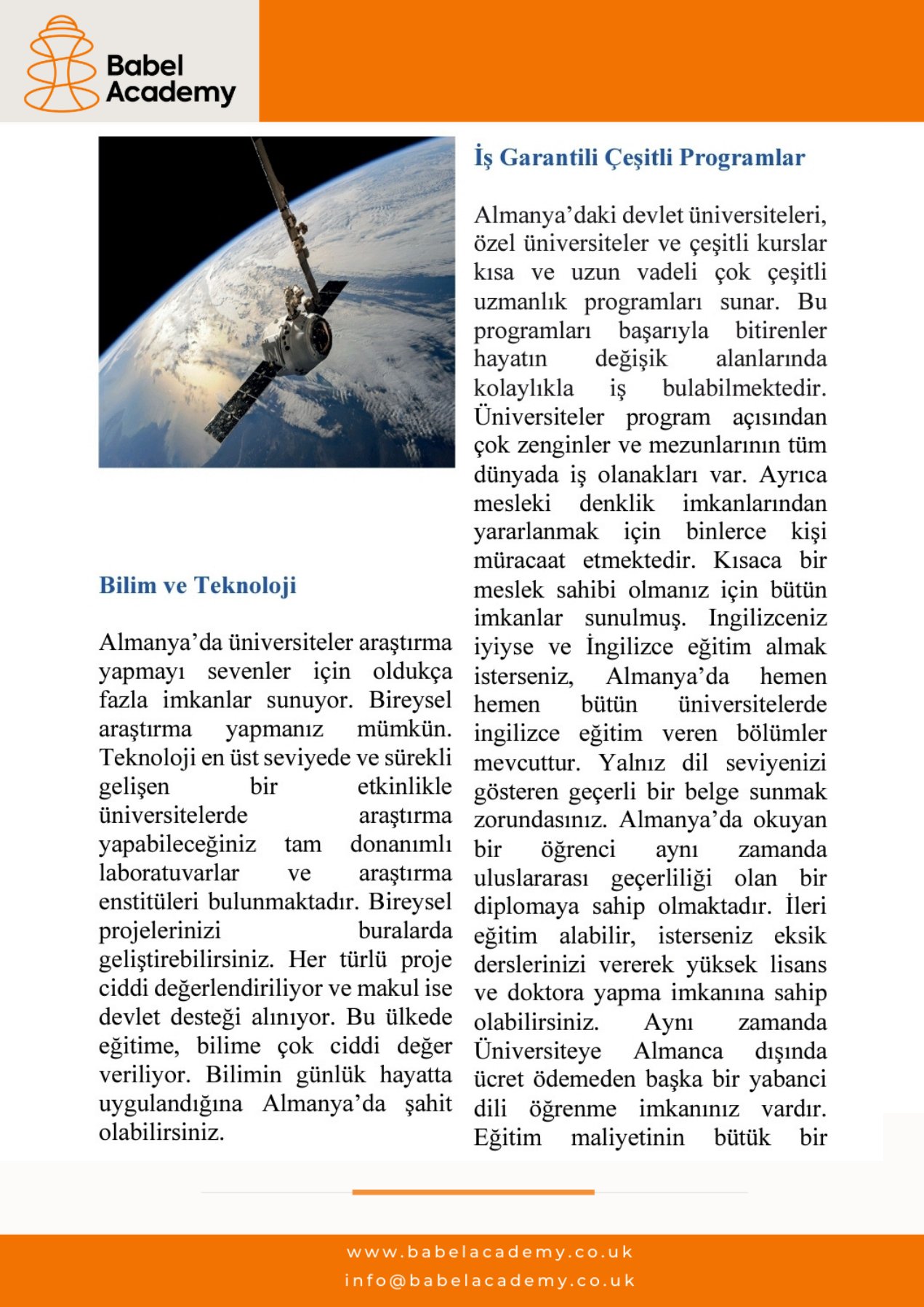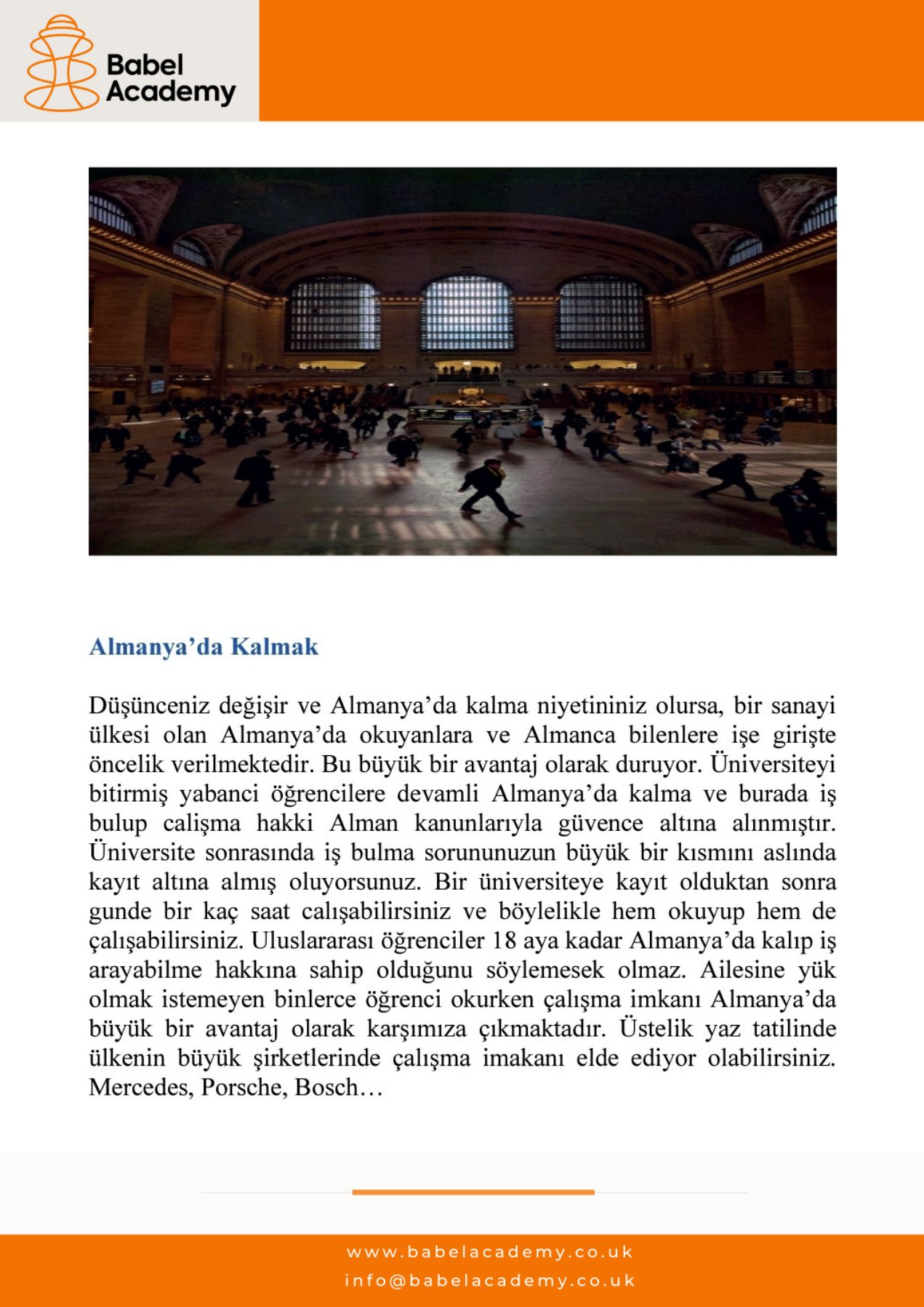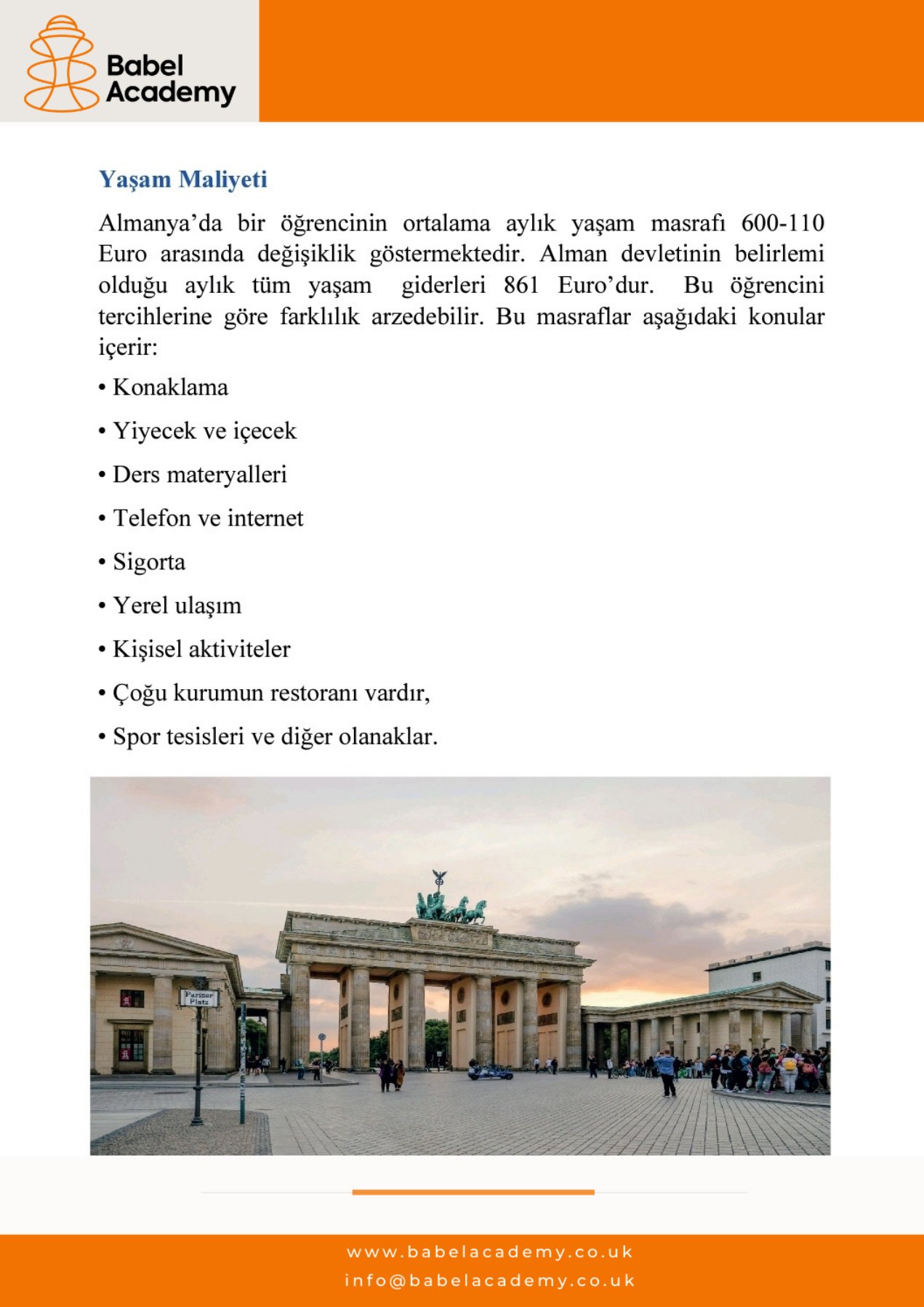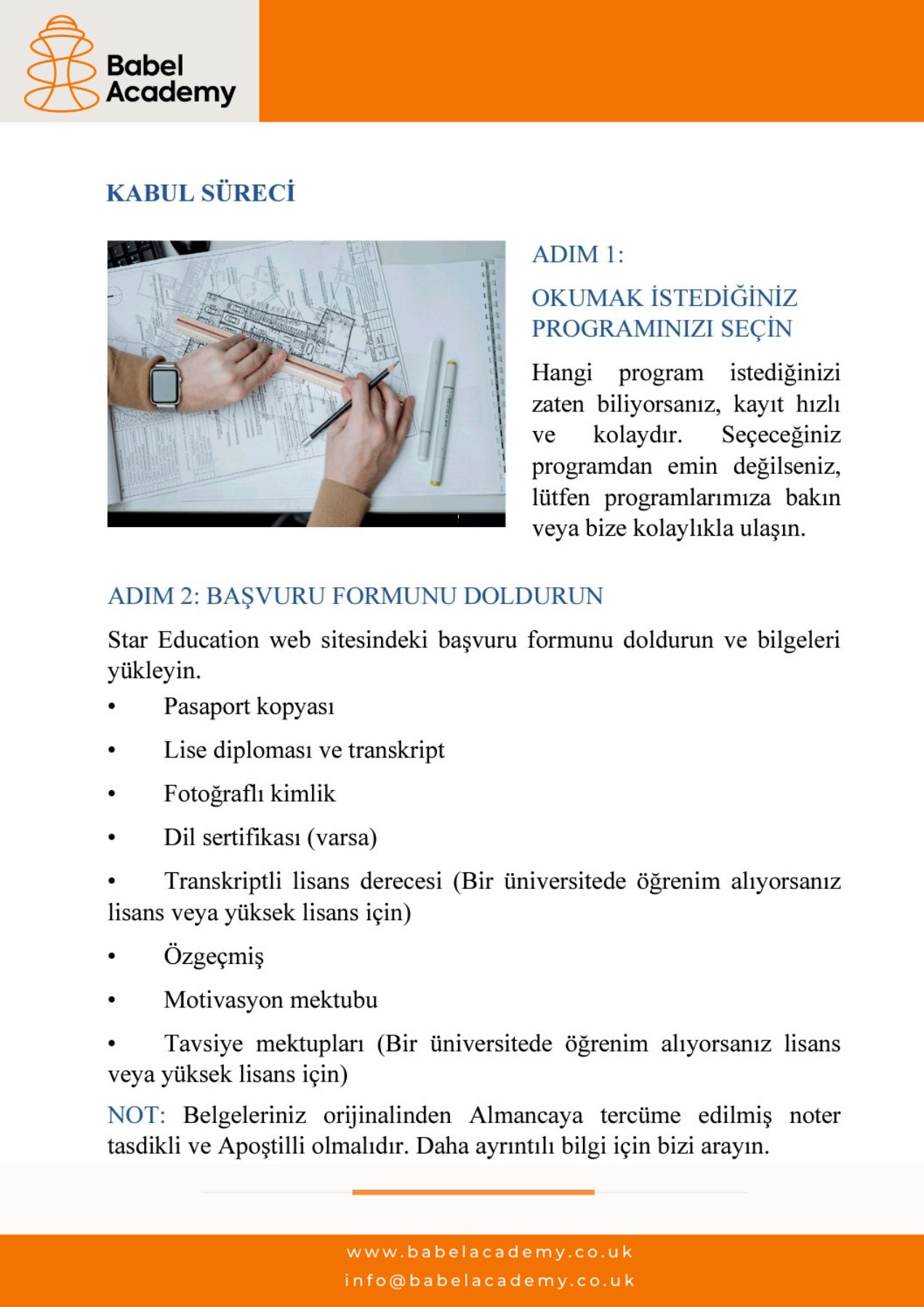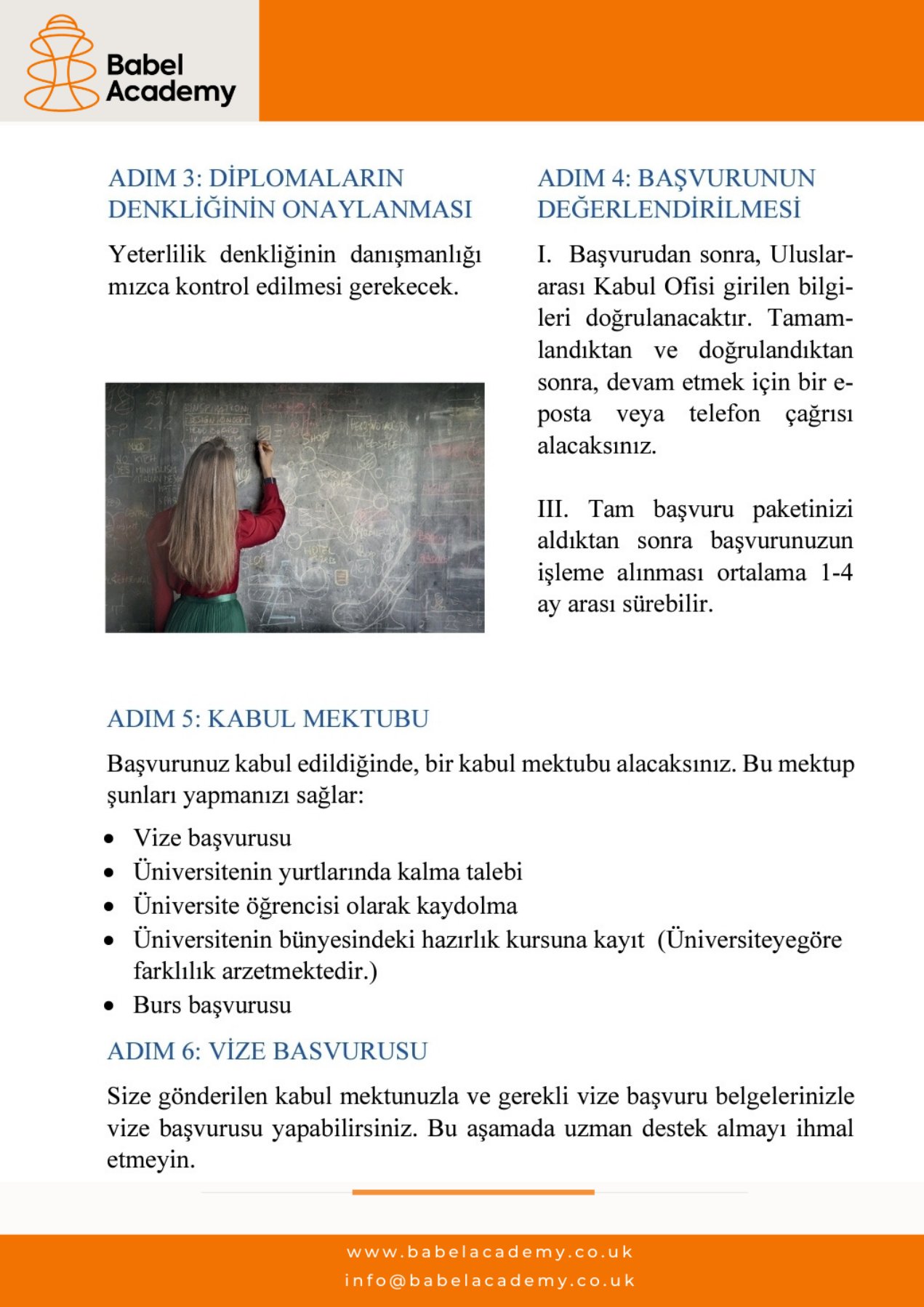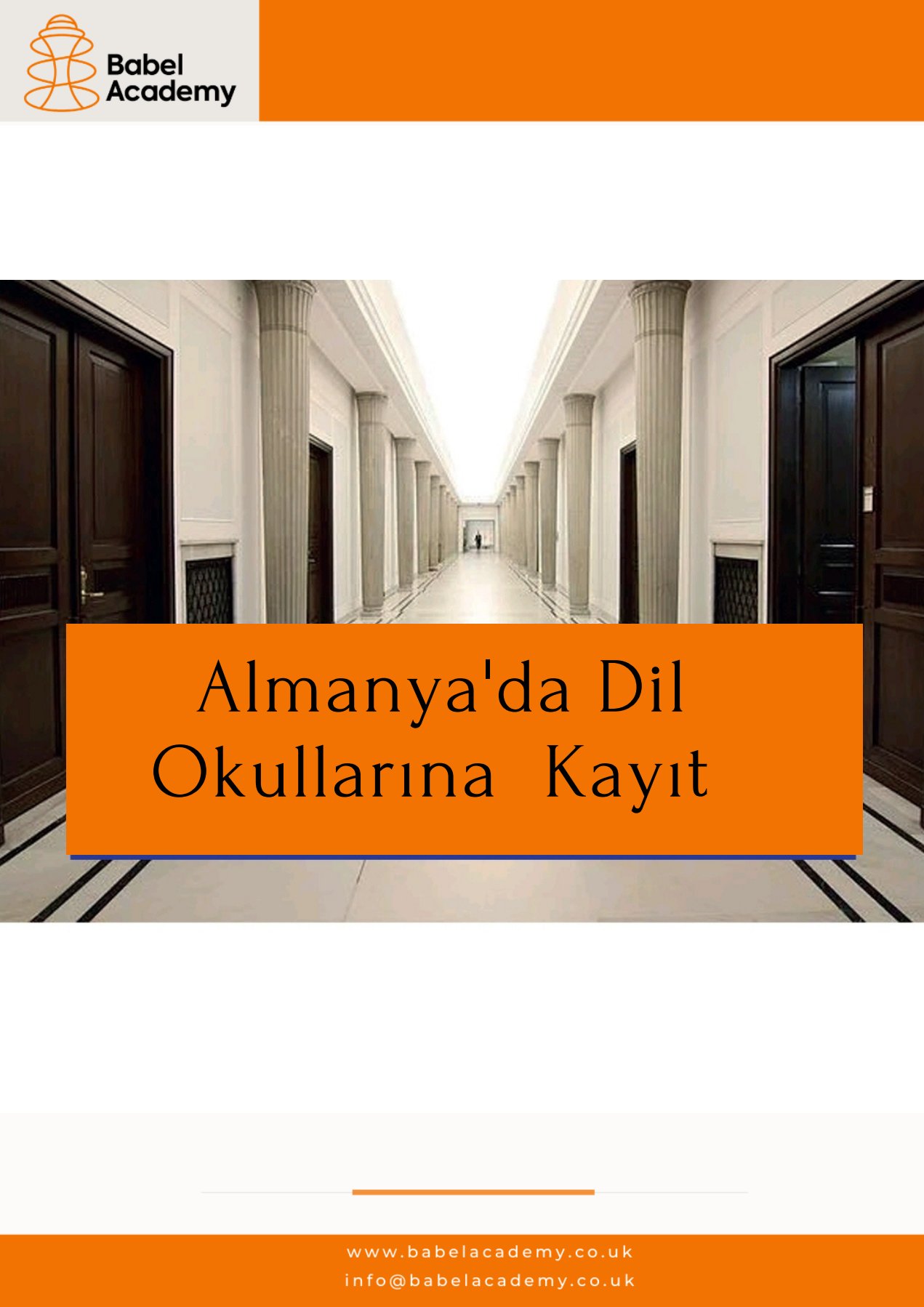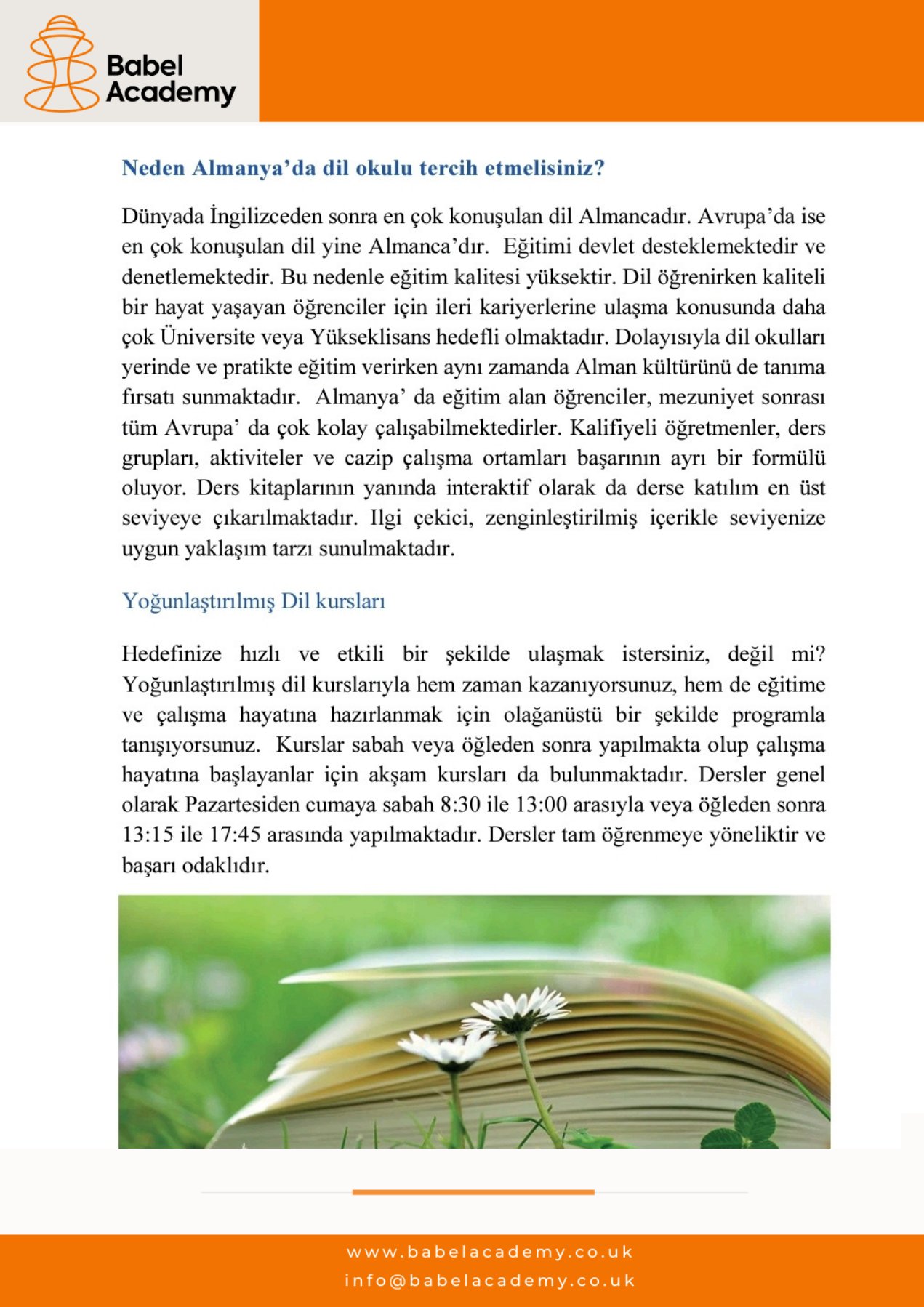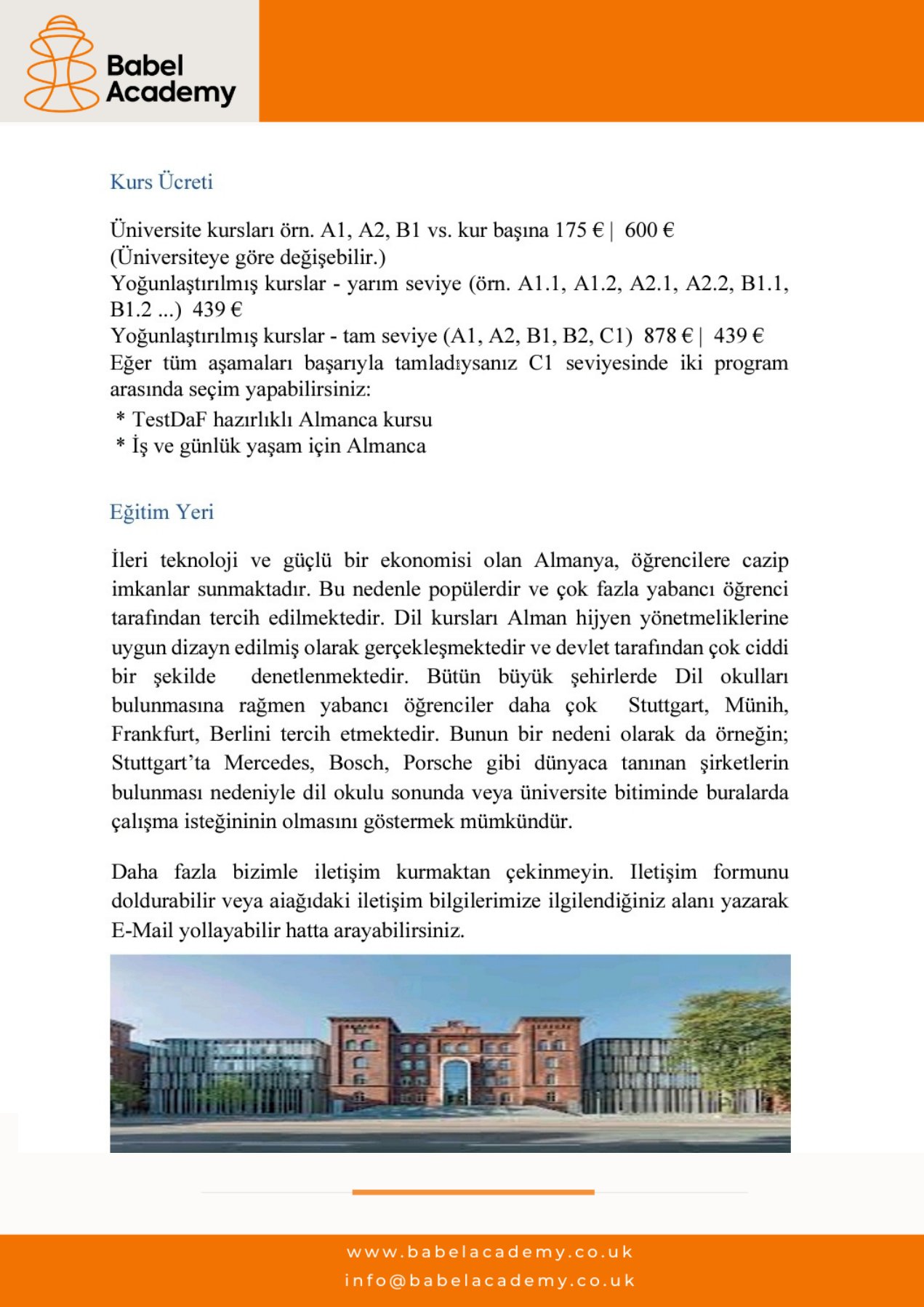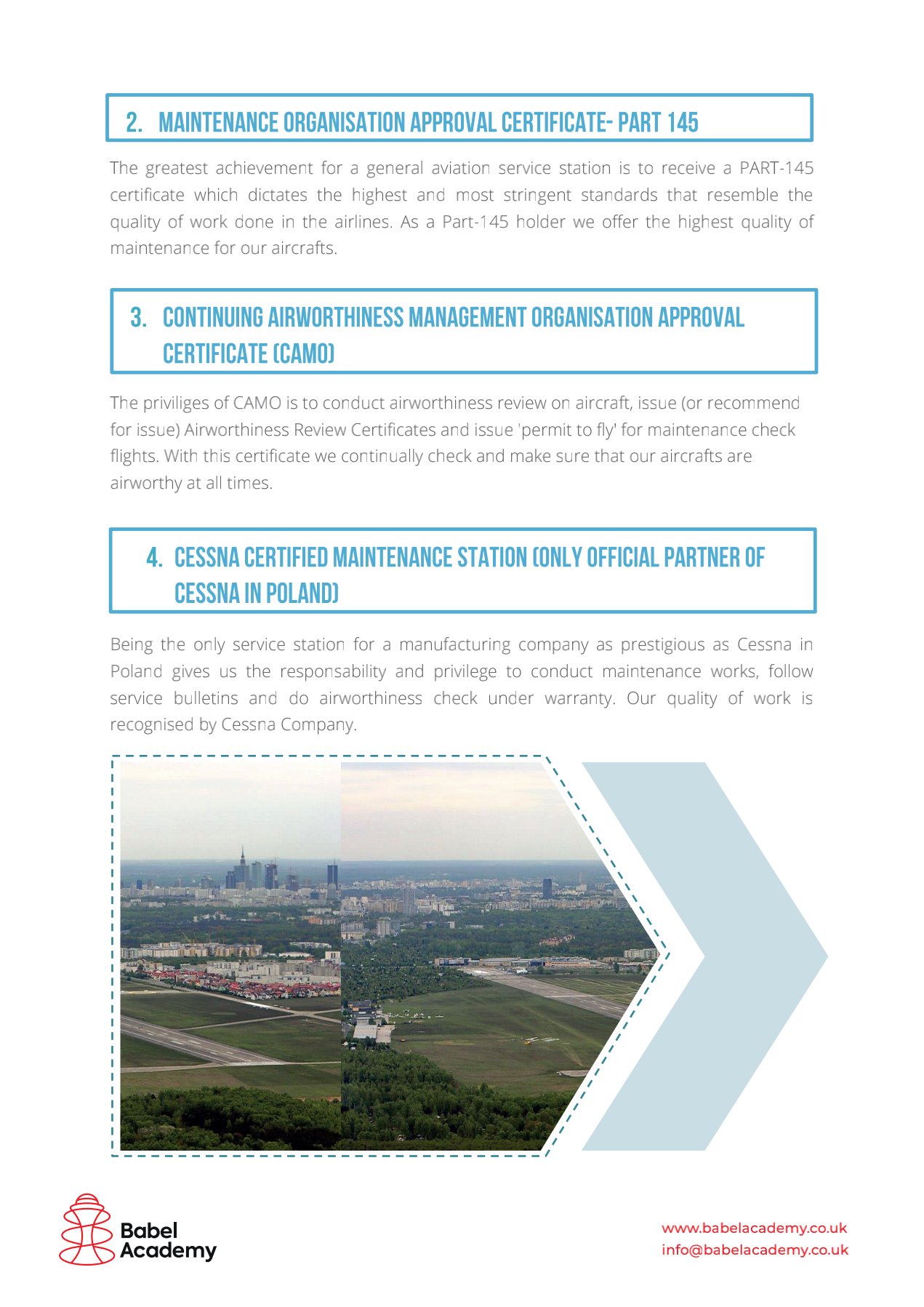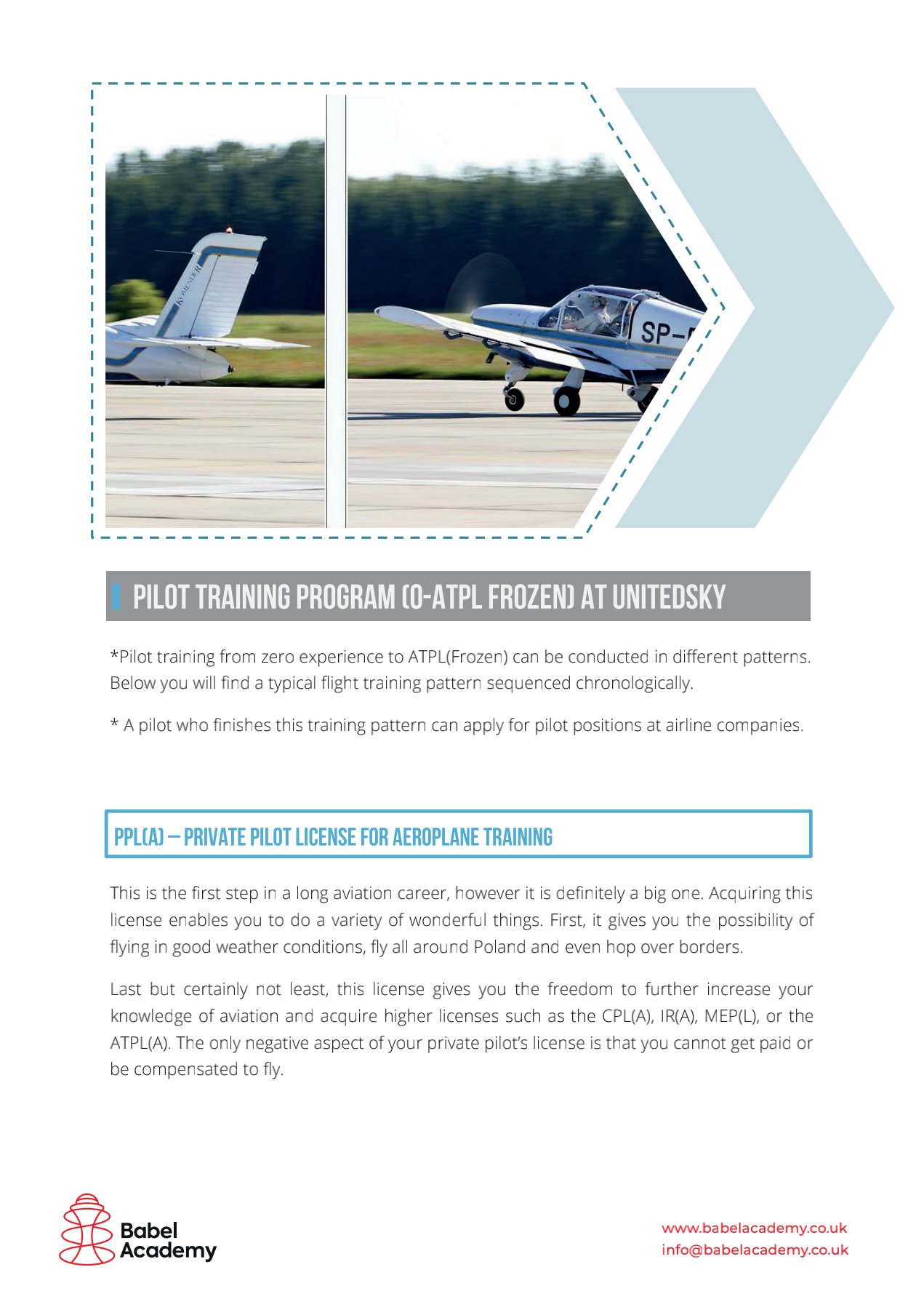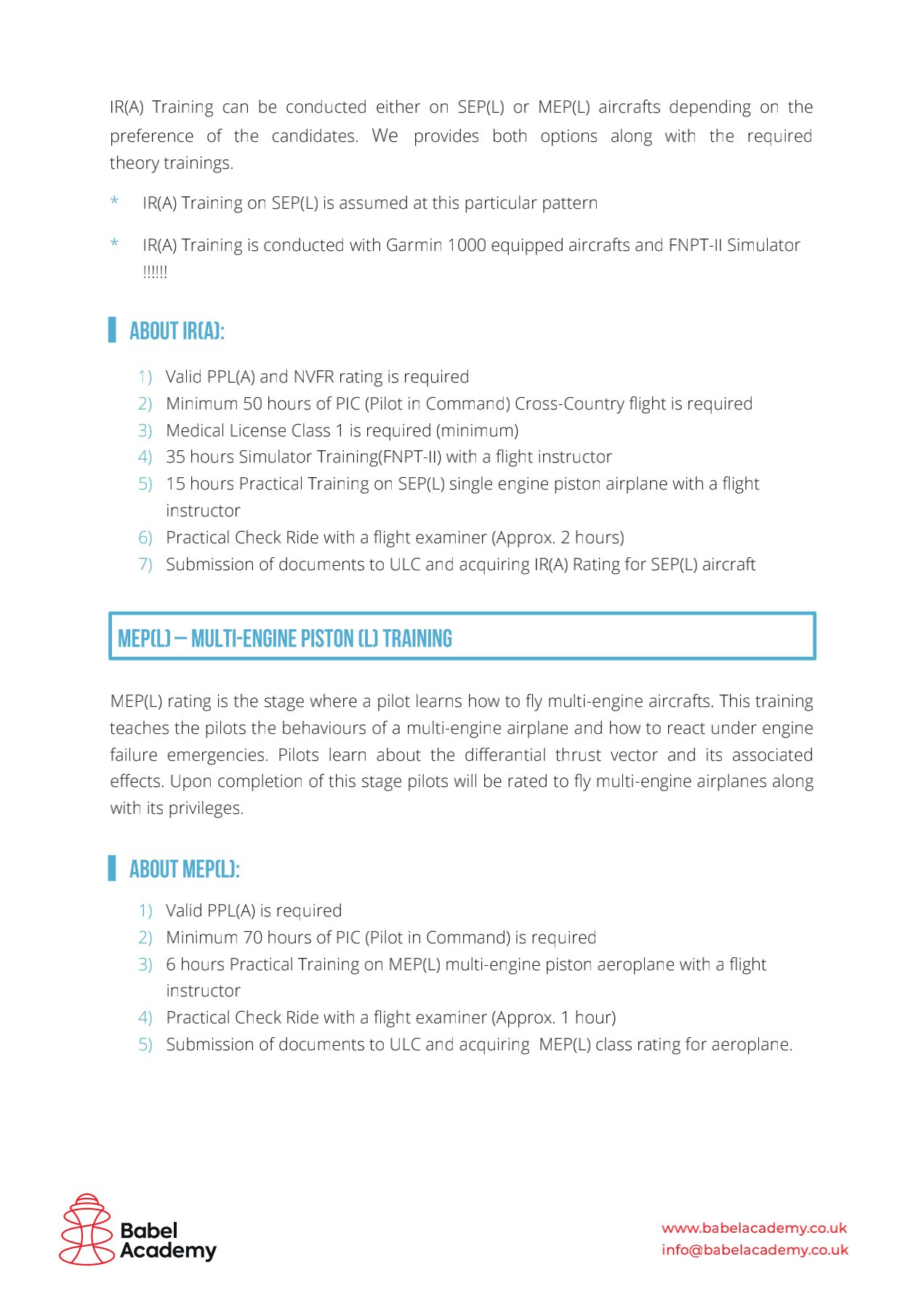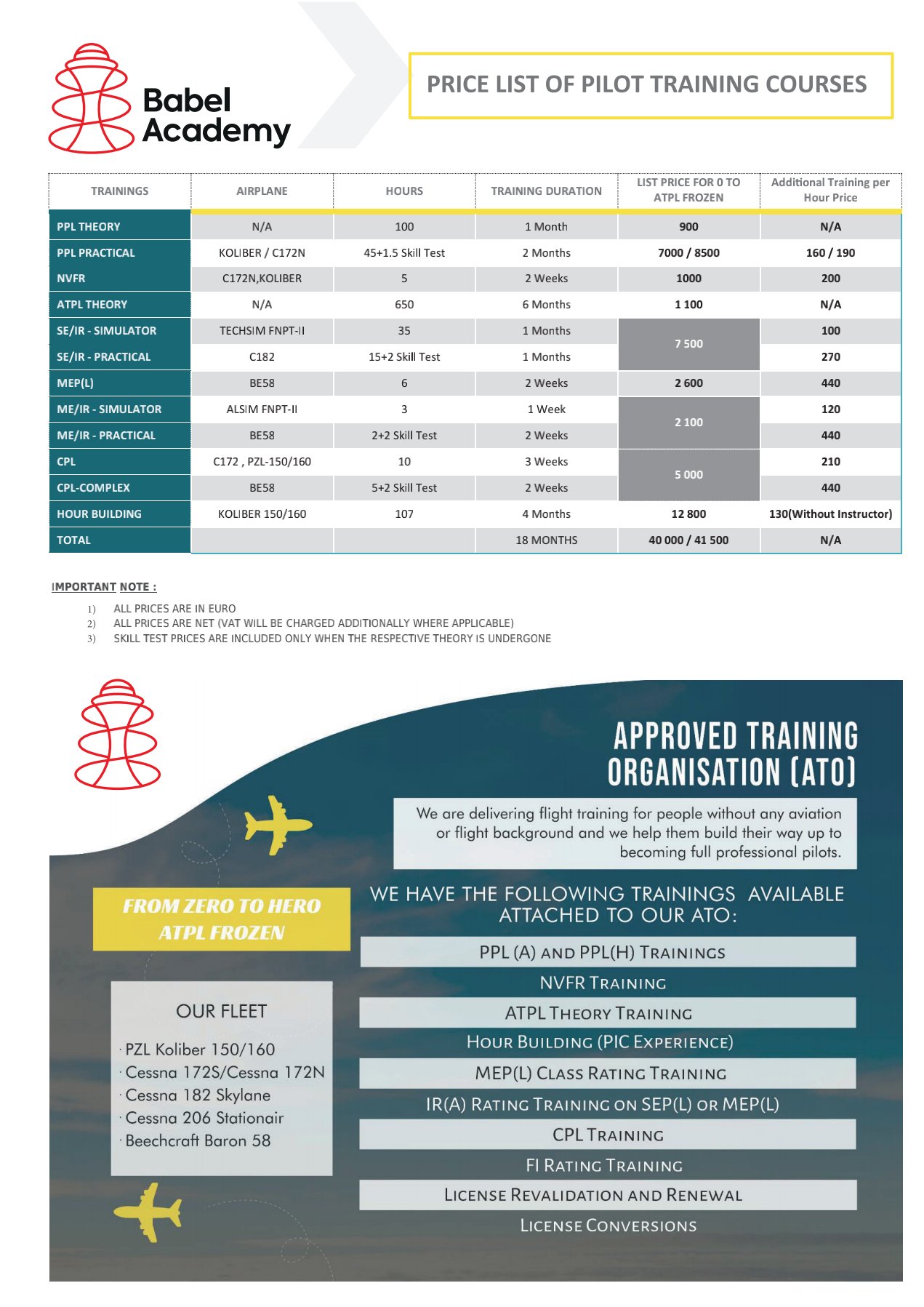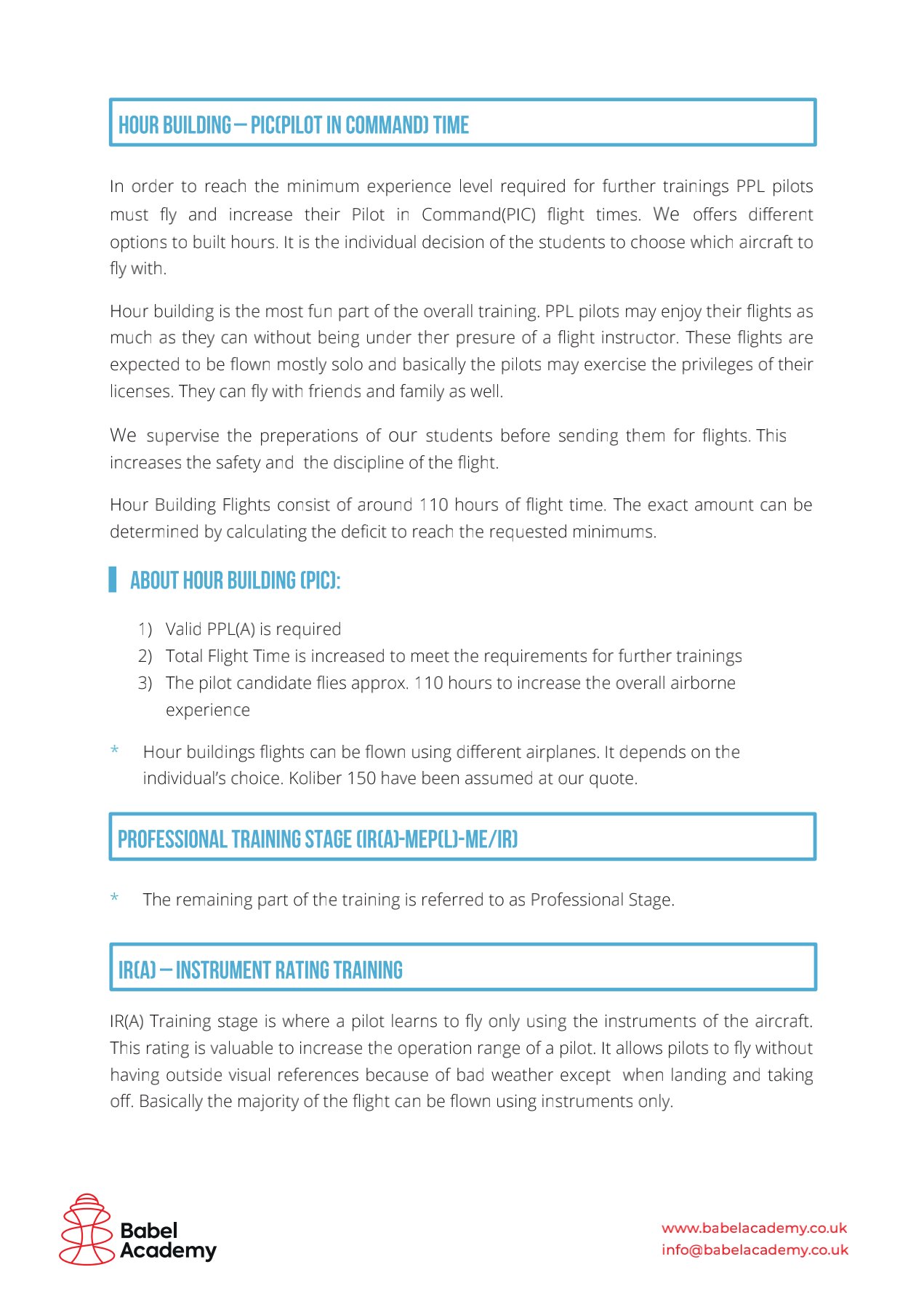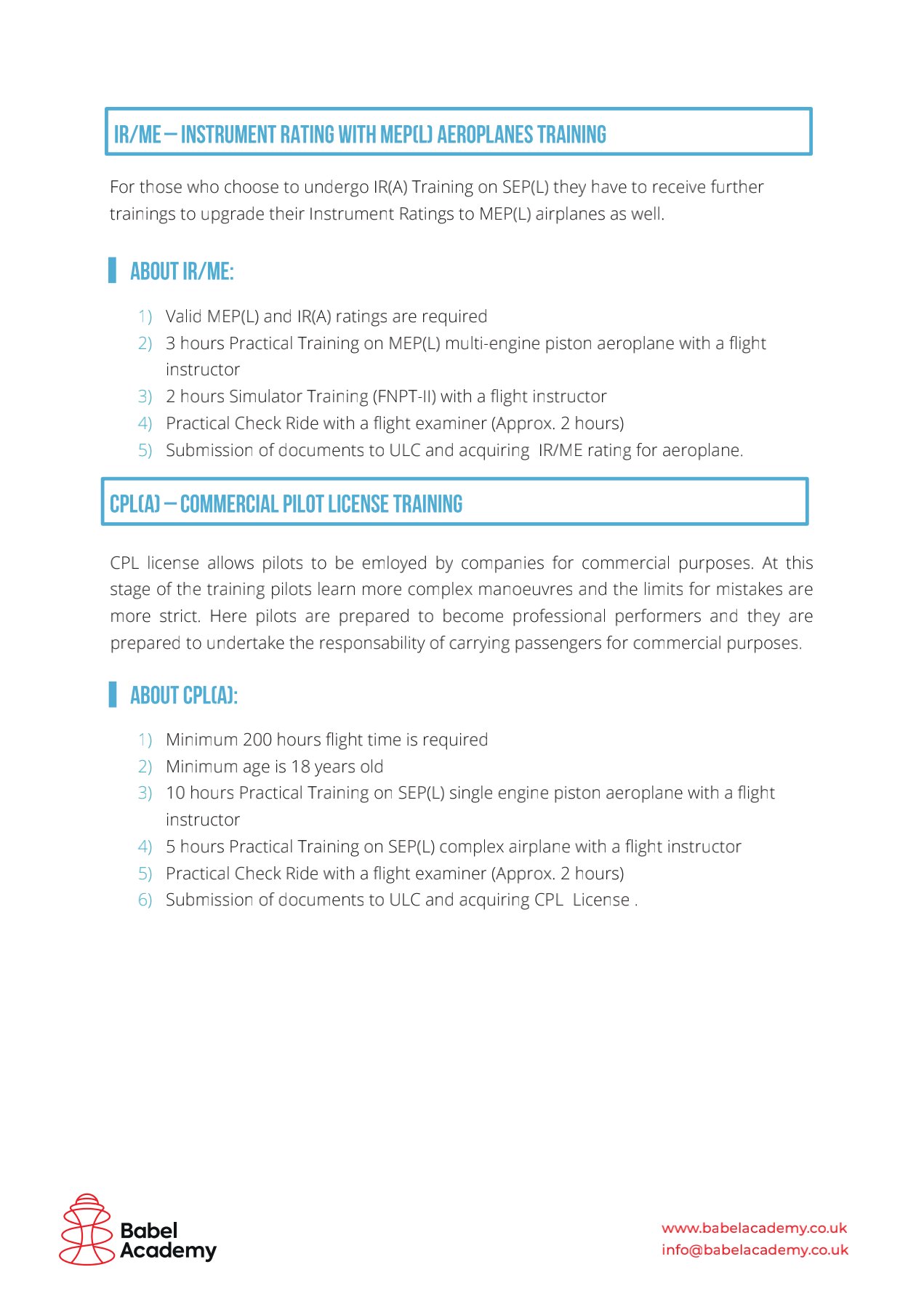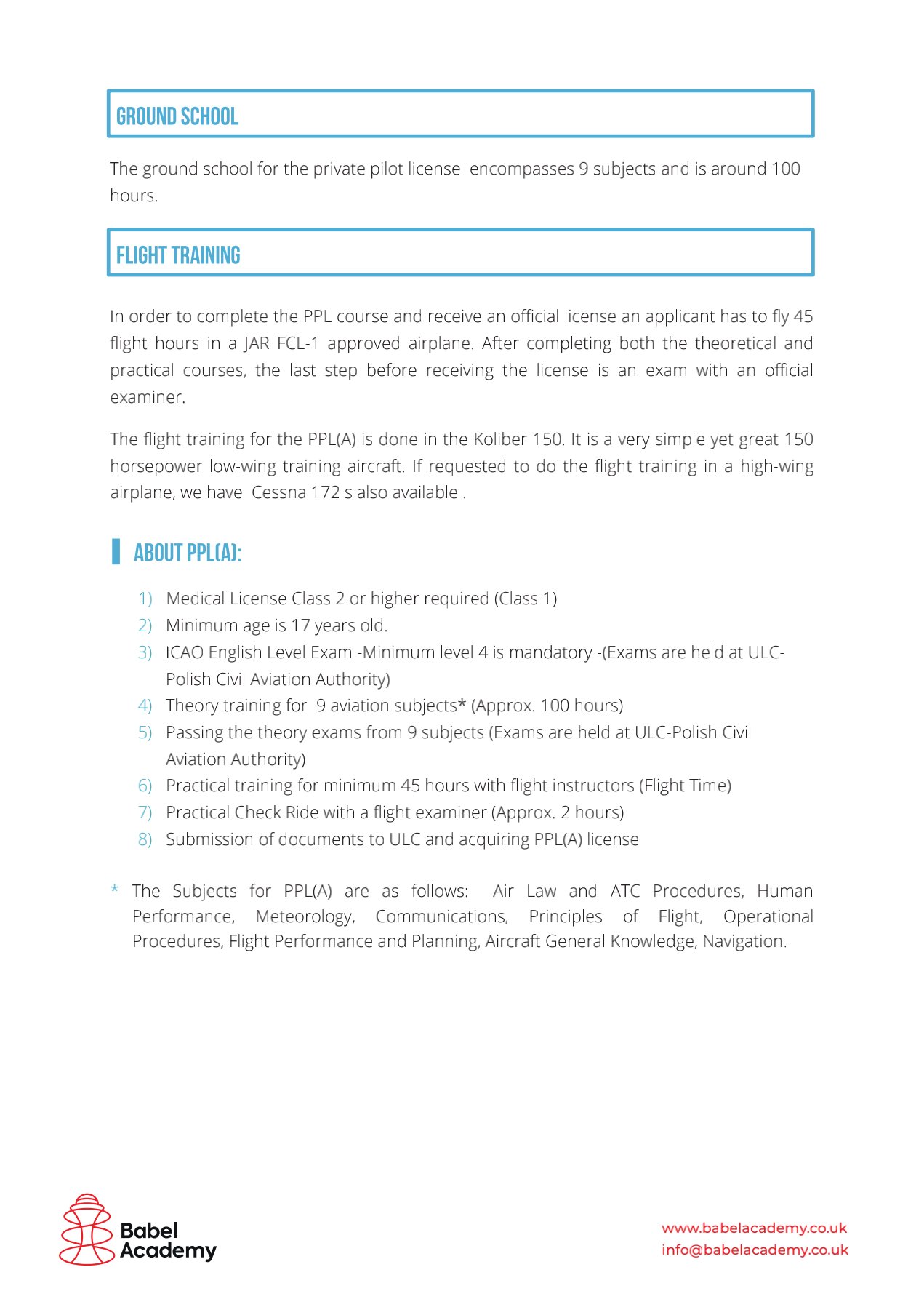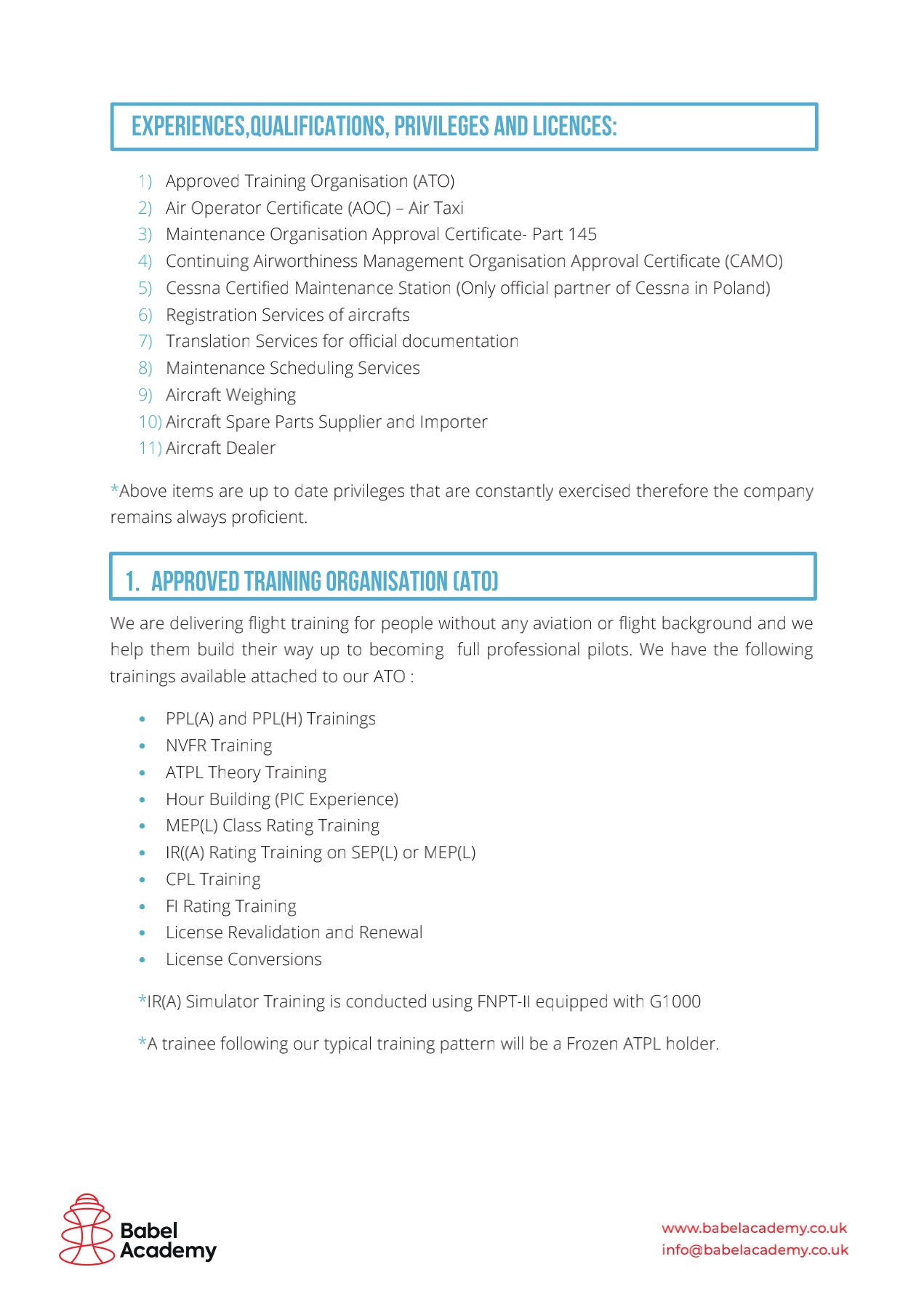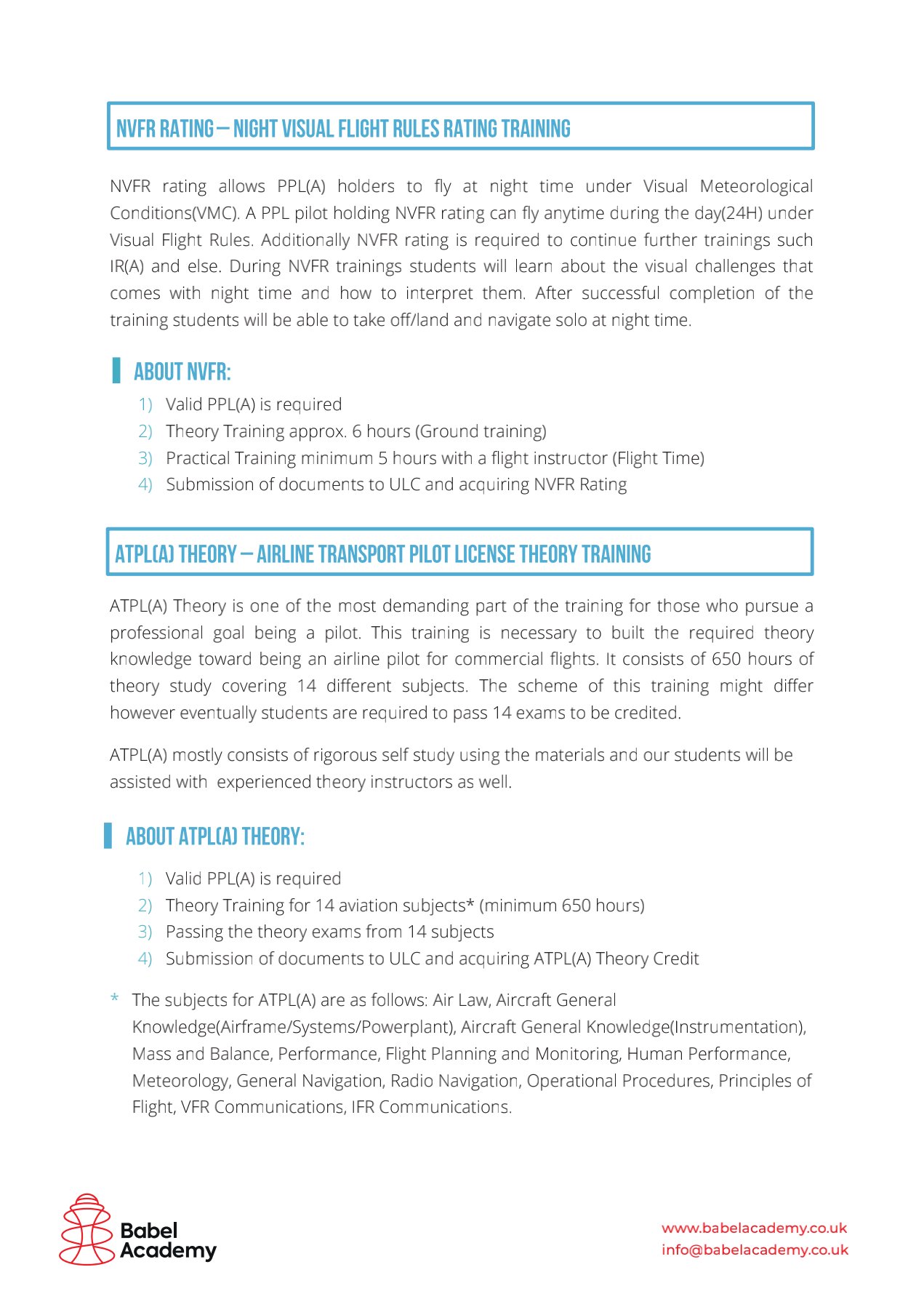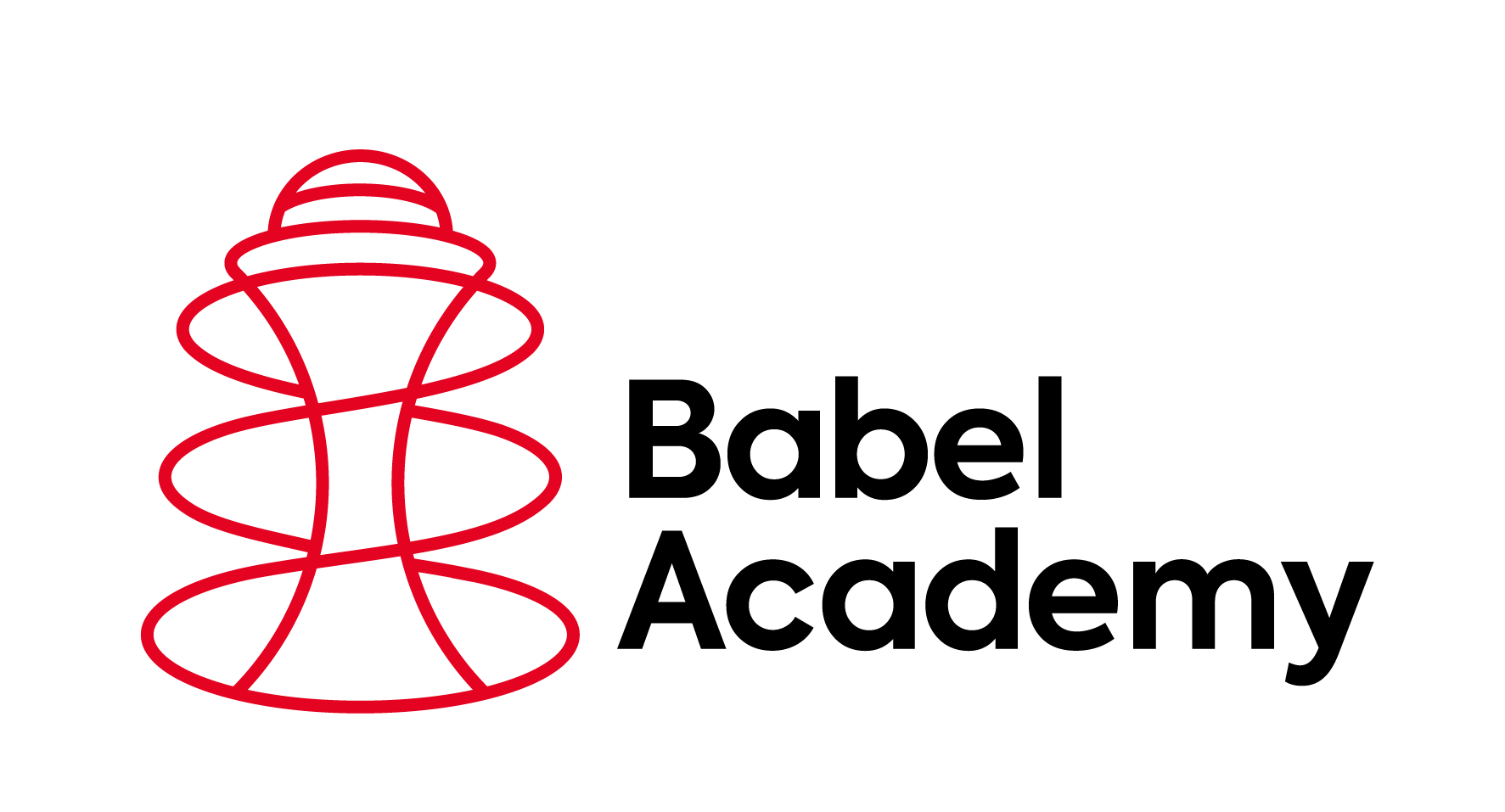EDUCATION IN EUROPE
Babel Academy is a private London-based training and consultancy service company. Thanks to the professional support it provides to students who want to study abroad contributes to students making the right choice. UK, Canada, USA, Australia, New Zealand and now in Poland after Turkey, Large number of countries in Belgium, Germany, Austria, Netherlands, Italy, Greece, Ukraine etc. We contacted university and college and started to serve .. As Babel Academy, we offer the most suitable education program according to the demands and needs of our students. and we offer professional consulting services to choose the educational institution.
Visa acquisition and admission procedures for accredited language schools, colleges and higher education institutions. Our wide range of services, including facilitation, are all over the world. Single We offer the advantage of getting more than one offer under the roof. Our main goal is to provide the most suitable educational options for our students’ needs and desires is to help them find.
GERMANY
GERMANY
Universities in Germany are particularly successful in technical fields such as engineering and computer science, and in mathematics. In this regard, Germany is one of the best alternatives for those who want to study at the undergraduate and postgraduate levels in the specified fields.
All universities in Germany are recognized by YÖK. However, it should not be forgotten that the equivalence procedures are directly related to the education received. the content of the course, completed in Germany, is necessary to coincide with the lessons taught in the same part of Turkey. If there is a conflict between them, taking some of the difference may be requested by HEC courses in Turkey. As with university education, Germany’s living standards are also very high. Completing undergraduate education in Germany also increases the chances of accepting a master’s degree.
University education in Germany is much more economical than in many European countries. State universities charge tuition fees between 150 and 400 Euros. Private university tuition fees vary between 1.500-20.000 Euros. In many universities, English is applied as the language of instruction in addition to German. The duration of undergraduate education is 3 years, and the education period of some applied parts of the profession is 4 years. While the period foreseen for the master’s degree is between 1-2 years, doctorate education takes 4-5 years. The language of instruction at universities in Germany is German. However, there are also universities that teach in English. The German preparatory program lasts 9 months. The beginning of the semester is generally September-October for the fall semester and February and March for the spring semester. Plain High School in Turkey, Anatolian High School, graduated from the High School of Science or the equivalent of a high school; The university entrance exam conducted by SSPC won the right to register at a university in Turkey are able to apply directly to universities in Germany.
Those who graduated from Vocational High School, Imam Hatip High School, or equivalent high schools are required to attend Studienkolleg, which is a pre-undergraduate preparatory program in Germany.
In programs whose medium of instruction is German, students who will study undergraduate must prove that they have the required German language knowledge with TestDAF or DSH exams. Students with insufficient language skills receive conditional admission and continue a 3-month German preparatory program before undergraduate education. Some universities in Germany also accept students who do not speak any German. However, in order to obtain a German visa, it is still required to have a document at least B1 level from these exams. There are also universities and departments in Germany that fully implement English education. In order to enroll in these departments, it is necessary to have the necessary scores from TOEFL, IELTS, or CAE exams. Although the minimum score of each university varies, a minimum of 79 TOEFL IBT and a minimum of 550 TOEFL PBT is required. At least 6 points are required from IELTS. You can get more detailed information by clicking the link below for application and admission requirements:
https://www2.daad.de/deutschland/nach-deutschland/voraussetzungen/en/57293-database-on-admission-requirements/?id=5165&ebene=5
Top universities in Germany:
1 Munich Technical University (https://www.tum.de/)
2 Ludwig Maximilian University of Munich (https://www.lmu.de/en/)
3 Heidelberg Ruprecht Karls University (https://www.uni-heidelberg.de/en)
4 Karlsruhe Institute of Technology (http://www.kit.edu/)
5 Humboldt University (https://www.hu-berlin.de/de)
6 Free University of Berlin (https://www.fu-berlin.de/)
7 Rwth Aachen (https://www.rwth-aachen.de/go/id/a/?lidx=1)
8 Technical University Of Berlin (https://www.tu.berlin/)
9 Tübingen University (https://uni-tuebingen.de/)
10 Freiburg Albert-Ludwigs University (https://uni-freiburg.de/)
NETHERLANDS
NETHERLANDS
The Dutch government is renowned for providing students who have come to study in their country with opportunities almost not found in many European countries. For example, the Netherlands is the first country in Europe to start teaching English. It is not compulsory to learn Dutch, the official language of the Netherlands. Also, nearly 1500 international education and courses are offered in Dutch higher education. While you do not have to learn Dutch, studying English, French and Spanish is a very relaxing opportunity for those who want to study in the Netherlands.
Dutch universities are educational institutions in Western Europe that have been in demand for education for many years, include schools that manage to be among the best 200 universities in the world announced every year, and accept students from our country in the current system. The demand of students who want to study university in the Netherlands is only one of the factors that reveal the success in education quality. You can equip yourself professionally in the company of successful academicians who have been working in their field for many years within high standards. Studying at a university in the Netherlands, one of the founding members of the European Union will provide you with many opportunities to find a job after your graduation. It is inevitable to improve your social side by studying in such a humane country. If you fulfill the conditions for entering the programs, you can get the education of the profession you want to perform without any problems within the Netherlands universities.
Thanks to the harmonious curriculum of many universities, your Dutch undergraduate education is recognized by YÖK. You can correct your deficiencies entering into equivalency exams for these courses are different from those transactions if you look at the lessons and lessons in Turkey in the Netherlands. Dutch universities in Turkey accepted the QS World Rankings, Times Higher Education, The Princeton Review should be entered in the first 1000 rankings of universities.
The admission requirements sought by universities in the Netherlands may vary from university to university. The things to do to study at a university in the Netherlands are similar to the conditions in other European countries. To study at a university in the Netherlands, you must document your language proficiency. Therefore, if you get a score of 6.0 – 6.5 for IELTS, 80 or above for TOEFL, your university applications will be healthier. Students who have not acquired language proficiency can easily settle into the university within the preparatory programs, namely the programs called Foundation. Moreover, the IELTS score you need to join the foundation program is 5.0.
The best universities in the Netherlands:
1 Delf University of Twchnology (https://www.tudelft.nl/)
2 University of Amsterdam (https://www.uva.nl/)
3 Wageningen University and Research Center (https://www.wur.nl/)
4 Erasmus University Rotterdam (https://www.eur.nl/)
5 Leiden University (https://www.universiteitleiden.nl/)
6 University of Groningen (https://www.rug.nl/)
7 Utrecht Universiity (https://www.uu.nl/)
8 Maastricht University (https://www.maastrichtuniversity.nl/)
9 Radboud University Nihmegen (https://www.ru.nl/)
10 University of Twente (https://www.utwente.nl/)
BELGIUM
BELGIUM
Belgium is a country in Europe with high living standards. Belgium stands out, particularly in some areas. Especially students who want to study Chemistry make Belgium the first choice. The ease of transportation to Belgium, where tuition fees are affordable, makes it attractive for Turkish students who want to study abroad. As English programs are offered, students can improve their English, French, and German.
The language of instruction in schools in the Walloon (French-speaking) region of Belgium is French. The language of instruction of the schools in the Flemish (Flemish-speaking) Region is Flemish. In Brussels, some schools teach in both French and Flemish languages. Teaching methods and course hours may vary according to the regions. In Belgium, schools can be opened by the State as well as by autonomous institutions and organizations. In this framework, schools; can be classified as Municipal Schools, Public Schools, and Catholic (Religious) Schools. Generally, the same curriculum and study plan are applied in all schools, and the schools are inspected by the state. The expenses of these schools are covered by the state. University Education education in Belgium can be divided into three levels. The first two levels can be named as associate degree and undergraduate education, and the third stage as graduate education. The two or three-year university first-level education is open to all students with a high school diploma who gives the right to transition to higher education. At this level of education, general and departmental science or humanities introduction instruction is given.
In the second level, after 2-3 years of education at the first level, teachers, engineers, pharmacists, medical doctors, veterinarians, etc. titles are obtained. This teaching level includes both applied and theoretical studies in preparation for scientific research.
Universities offer tertiary education to those who have a bachelor’s degree from the second level of university education. Some long-term colleges also implement tertiary programs. The one-year graduate programs of these schools are According to their matches, they provide more practical and practical training than universities. These may be programs aimed at expanding the previously seen higher education or providing training to specialize in a particular subject in their field. It is difficult to compare this education with the graduate programs of universities. These programs are also open to university graduates. In education, which is a one-year term and called complementary graduate higher education programs, the aim is to make wider studies in the undergraduate field and an academic degree is not earned at the end. To apply to programs whose medium of instruction is English, he/she must know English at a level of 87 – 109 from TOEFL and at least 6.0 from IELTS. In Belgium, university tuition fees vary between € 500 and € 7,000 per year, depending on the preferred university and program.
The best universities in Belgium:
1 KU Leuven (https://www.kuleuven.be/kuleuven/)
2 Ghent University (https://www.ugent.be/)
3 University of Antwerp (https://www.uantwerpen.be/nl/)
4 Universite Libre de Bruxelles (https://www.ulb.be/)
5 Vrije University Brussel (VUB) (https://www.vub.be/)
6 University of Liège (https://www.uliege.be/cms/c_8699436/fr/uliege)
7 Hasselt University (https://www.uhasselt.be/)
8 Université de Mons (https://web.umons.ac.be/en/)
9 Louvain University (UCL) (https://uclouvain.be/fr/index.html)
10 Hogeschool West-Vlaanderen (https://www.howest.be/nl)
AUSTRIA
ITALY
ITALY
Italy’s password-free cultural communication has become one of the countries with worldwide popularity in the field of high-quality education and training. “With approximately 90 higher education institutions, which are state universities, it is the favorite of many students in the field of architectural design and engineering, which has a wide range of education and learning, and its past and cultural background play a big role.
There are also undergraduate programs with high potential: Daily tuition fee of 1000 to 3500 Euros for audio training. Entries are made in Italy in several different ways. While the Italian Ministry of Education admits students to departments such as medicine, architecture, and veterinary medicine through central examination, faculties that provide engineering and design-based education organize their special exams. The academic background of students at the academy or doctoral level plays an important role in their admission to schools. Therefore, an examination system is not applied to enter some departments in various universities, and success in their academic career is taken as a criterion.
Dam in Turkey YGS in absolute terms to perform their diploma equivalency process in Turkey it has a history of Italy Consulate recording conditions. The institution to which Italian universities are affiliated is the University and the Ministry of Scientific – Technological Research. Universities are also subject to inspection by the ministry, having education permission from this ministry. The duration of associate degree education at a university in Italy is 3 years. Universities score on a credit basis, and the total credit load of a student for one semester is 60 credits, which corresponds to 1500 hours. Students must pass the courses with sufficient grades to earn credits. The grading system of universities is 0 to 30 audible alerts. To pass a course, the student must get at least 18. There is an obligation to do an internship within the scope of a 3-year university associate degree education. Undergraduate education is protective for 4 to 5 years, depending on the program of the faculty attended. For example, medicine and its derivative departments can last 6 years. Undergraduate students have completed 180 credits for graduation and deservedly. Doctoral programs are again exemplary for 2 to 5 years. These programs are given to education and generally accepted students are accepted to these programs. Students who complete the doctoral research program continue to study for 2 years and become entitled to the title of Doctor. For Turkish students who want to study at Italian Universities, you can find the Italian Consulate General School in April-June of the year on pre-registration dates. registration conditions in some university diplomas at universities in Turkey are given below.
Diploma Equivalency Certificate: Italian Consulate General in Istanbul University in Turkey (undergraduate and graduate) issued the equivalence of degrees awarded by documents. Italian universities in undergraduate or graduate applications made in Turkey to receive training from the school that you graduated with diplomas notary notarized Apostille commentary from the district governorate Italian translation should be done in absolute terms. Registration of the department in which the department is studying in the corresponding department at the school in Italy; A certificate of equivalence is issued for applications made to the Consulate General of Italy in Istanbul for undergraduate education or graduate education and the original work. It is held in April and May of the year Italian universities pre-speak.
At least 12 years of education: university education in Italy who wish to teach at the university level in Turkey, courses in the first year of school they went history and certifications are required. Students in this situation can enroll in another department in Italy if they wish. However, for other future careers they read in school or enroll him in Turkey an equivalent faculty is recommended. Preparatory classes are not included in the 12-year training required by Italian universities.
Adequate knowledge of Italian: Students’ knowledge of Italian is measured by written and oral exams at the Italian Cultural Center. For university education, there is a requirement to speak Italian at an adequate level. Those who will read English must have TOEFL / IELTS.
Top universities in Italy:
1 Politecnico di Milano (https://www.polimi.it/)
2 Università di Bologna (https://www.unibo.it/it)
3 Scuola Normale Superiore di Pisa (https://www.sns.it/)
4 Scuola Superiore Sant’Anna Pisa (https: //www.santannapisa.i
POLAND
ABOUT POLAND
Poland is located at the heart of the European continent.
Poland is located at the heart of the European continent. A country is a meeting place not only for cultures and ideas but also for conflict and confrontation.
Poland’s borders have changed many times over the centuries. Its present borders were set after World War II ended in 1945. Poland has seven neighbors: Germany, Slovakia, the Czech Republic, Lithuania, Belarus, Ukraine, and Russian Kaliningrad.
Poland has a variety of striking landscapes, from the sandy beaches of the Baltic Sea coast in the north and the rolling central lowlands to the snowcapped peaks of the Carpathian and Sudeten Mountains in the south. Poland has more than 1,300 lakes throughout the country.
FAST FACTS
OFFICIAL NAME: Republic of Poland
FORM OF GOVERNMENT: Republic
CAPITAL: Warsaw
POPULATION: 38,420,687
OFFICIAL LANGUAGE: Polish
MONEY: Zloty
AREA: 120,728 square miles (312,685 square kilometers)
MAJOR MOUNTAIN RANGES: Carpathians, Sudetens
MAJOR RIVERS: Vistula, Oder
PEOPLE & CULTURE
Religion is a very important part of Polish life. The majority of the population (about 87 percent) is Roman Catholic. In 1978, Cardinal Karol Wojtyla, archbishop of Krakow, became the first-ever Polish pope. He took the name John Paul II and was head of the Catholic Church until he died in 2005.
Work in Poland
Poland needs qualified employees.
Many Polish students work while studying. Foreign students can work part-time. University Career Offices offer professional assistance in finding part-time employment, paid and unpaid internships, and help qualified students in finding appropriate employment after the end of studies.
Poland is an economy governed by free-market rules, additionally circumscribed by EU regulations. THE current GDP is USD 27,700 and the current purchasing power parity is $ 1.052 trillion. The inflation rate in June 2017 was -0.8%.
Social and Cultural Life
Poland used to be an ethnically homogeneous place. International students change this: major educational centers of Warsaw, Poznan, Gdansk, Cracow, and others are becoming more culturally diverse.
Cultural events in Poland happen daily: concerts, shows, exhibitions, outdoor events, and sports events. Sightseeing is excellent. Also, numerous cinemas, restaurants, cafes, recreation, and wellness centers are waiting for you.
Living Costs
Living costs in Poland largely depend on the places you study and live in. Metropolitans like Warsaw will always cost you more than living in a rural area. The average cost of living in Poland for international students costs around 500 to 850 Euros a month. There will be differences in the amount based on your accommodation type, lifestyle, and social expenses in Poland, and this is just an average number.
Accommodation
There are two types of accommodations in Poland. The University dorms and the private student dorms. The University dorms are cheaper and of course, closer to the Universities in Poland, but they are limited in numbers. Private rental apartments have higher standards and higher rents.
Private Rental Apartments for Students: 350 to 400 EUR / Month
On Campus Accommodation: 170 to 200 EUR / Month
Food Costs
There are higher accommodation costs of living in Poland for international students in cities like Warsaw. The average rent for a one-bedroom apartment is 360 to 500 EUR / Month.
Average food costs in Poland for the international student is somewhere around 100 to 150 Euros a month. There are many cheap options available for groceries that will help you minimize your cost of living in Poland for International students. The restaurants are decently priced, too. A three-course meal will cost you around 23 Euros, and the drinks have an average price of 2 Euros.
Transportation
The prices of gasoline keep changing, however, the average is 1 Euro a liter. If the place students are staying is nearby the University, Poland is a very Pedestrian-friendly country. A semester pass from the Universities cost around 50 euros for the semester for the students in Polish Universities.
These are some of the regular costs of living in Poland for international students, and there are some miscellaneous costs of stationery, internet, and other costs that will be added, and again, the averages will change basis the places you are staying at.
Study in Poland
Poland is a fascinating country that is at the geographical and cultural crossroads of Eastern and Western Europe. Today, there are 140 states (public) higher education institutions and 261 private (non-public) ones. The system divides them into university-type and non-university institutions. The university-type HEI offers at least one doctoral program.
Students pursue their studies at universities, technical universities, and academies from October to February and from February to June.
The first-cycle studies, as per guidelines of the Bologna Process in European higher education, last 3-4 years (180-240 ECTS) and give the student an equivalent of a Bachelor’s degree. The second-cycle studies, i.e. the Master’s degree program, last 1.5 – 2 years (90-120 ECTS). Master’s degree holders may enter the third-cycle studies, the doctoral program.
Why Study in Poland
Safety: There are various ways a student might be unsafe especially when she s / he is thousands of miles away from home. Certain countries may have higher rates of certain kinds of crime which may present a danger to unsuspecting outsiders, while in some certain places there may be too many distractions for a healthy study environment. Poland is a country that scores very high on all counts of safety statistics and in terms of a healthy, clean and green environment in which to live as well. Parents can rest assured that their loved ones will be studying peacefully wherever they may be in Poland.
Quality: On average Poland is one of the best countries in the world in quality of education. This is one of the reasons lots of Polish people can find well-paying jobs in other European countries or places like the USA, Canada, and Australia. Poland’s educational institutions score quite high in international rankings which are indicated in the results of PISA exams. But this is true for many European countries. The best country in the world in quality of education is consistently Finland and several other European countries follow Finland closely. Poland is one of them with 6 of its universities in the QS World Ranking of 2015-2016.
Cost: This is where Poland separates from the pack. There aren’t many destinations in the world where one can study in English and receive a good education at very affordable rates. Poland gives this opportunity to practically anyone. You don`t have to be rich or even a high achievement student to be accepted by a Polish university. Polish universities emphasize creating opportunities for students over academic rigor, so even with a relaxed attitude school work should be manageable.
A typical student will pay annual tuition in the range of 2500 – 4500 Euro (around 2800 – 5000 USD). The living cost will also be in the same range. Thus, total tuition and living costs for a year will be in the range of 6000 – 9000 euro depending largely on the student’s spending habits.
Jobs: Poland is the only country in Europe whose economy never stopped growing in the past two decades when many European countries got smaller in terms of economic growth. This means Poland has jobs for young people where others don’t. More important than that for international students is the Polish government’s attitude towards them. In some countries, the local workforce is favored above and beyond an international one but Poland gives opportunities to international students to stay and work after receiving a degree if they wish to do so. But it also lets them work part-time during their studies to support themselves financially and gain professional experience.
When a student arrives in Poland he needs no work permit to work part-time or even for a full-time job when school is finished. The simple fact of finishing a Polish university entitles them to sign an employment contract without a work permit. This is a huge advantage for anyone who would like to stay and work in the EU.
Admission Procedure
Polish Universities Admission Requirements
You can study in any department in Poland. no matter what you are, graduating from high school in Turkey or section by selecting the section you want in Poland, you can get training. Required documents for application are:
STEP 1 – Fill in the Application Form
Be sure to upload the required documents to the online application form:
1. Passport copy;
2. High School Diploma and Bachelor Diploma if you have;
3. Sworn translation of High School Diploma into Polish; (If Polish translation is
not possible, please send your documents, translation into English, translation of the document to
Poland can be provided upon arrival);
4. Photo;
5. Language Certificate (equivalent to B2 level);
- TOEFL (IBT 87, CBT 180, PBT 510),
- TOEIC (700),
- IELTS (6.0). Also, the following certificates can be provided at the B2 level
- English, CAE, CPE, BEC, CEIBT, CELS, FCE, IELTS, TOEFL, ESOL, IESOL, SET,
- EBC, EOS, TOEIC, LCCI, B2 Certificate;
6. Equivalence or apostille copy of high school diploma (available upon arrival).
7. Health insurance for study abroad, valid for 1 year> English annotated policy
8. Health report in English stating that there is no physical or mental problem in education
9. English reference letter
10. CV in English
STEP 2 – Wait for Application Evaluation
The University Admissions Committee will evaluate your documents.
The evaluation will take up to a week.
You will receive information about Conditional Acceptance and Invoice for Payment.
STEP 3 – Make Your Payment
Payment of registration fee and tuition fee;
Scan confirmation of payment (Swift) and send it to us.
STEP 4 – Visa Application
A Letter of Acceptance is provided and sent to you. You can now apply for a visa.
Our Promises for University Education Counseling in Poland !!
- 100% success in student placements
- Professional Visa Consultancy
- Orientation tours and workshops
- Choosing the right section
- Choosing the right city
- Choosing the right university
- University trips
If you want to get full local consultancy support in Poland, Babel Academy will be with you again;
Insurance, Residence, Residence permit, Airport transfers, City promotions, Anytime you need 24/7, Internship and job finding, City trips
If you want to study in Poland, contact Babel Academy now!
UKRAINE
UKRAINE
Ukraine stands out among the countries preferred for undergraduate education, especially in recent years. The main factors behind this situation are as follows: Diplomas from Ukrainian universities are valid in all European Union countries by the Lisbon Treaty. For this reason, it is also possible to apply for undergraduate transfer to universities in European Union countries while receiving university education in Ukraine. YÖK recognizes Ukrainian state universities and easily equates the diplomas received from these universities.
University fees are very economical when looking at prices worldwide (1500-5000 USD per year). Ukraine is one of the most economical abroad options that can be studied in terms of both transportation and living costs. Since there are no requirements such as passports or visas to enter Ukraine, both the student and the student’s family can travel to the country with only their identity card.
Ukrainian consulates also welcome foreign students and generally do not cause any difficulties in education visa processes. In Ukraine, which is one of the leading countries in this field by hosting around 75 thousand foreign students, especially cosmopolitan students such as Odesa and KharkivSecurity concern is minimal in the cities. In such cities, a rich and enjoyable life awaits students from different cultures, both in terms of education, culture, and arts. You can get a university education in Ukraine with your high school diploma.
However, it is compulsory to take a preparatory education for 9 months before starting undergraduate education. Russian is preferred more in preparatory education; Because the education quality of the universities with Russian education is higher and the number of departments to be preferred is more. English preparatory education can only be preferred by students who want to study in certain departments such as Medicine and Dentistry. However, since the quality of English education in departments providing English education in Ukraine is low, this option is not preferred. The Ukrainian language is not among the preferred options in preparatory education. The most important factors in this are the fact that Russian is a more common world language and that the quality of education is higher at universities providing Russian education. Preparatory education in Ukraine differs from many other countries.
Odesa, Kharkiv, and Kyiv are 3 cities that stand out in university education. Especially Odesa and Kharkiv from these three cities; It stands out with its people speaking Russian, its quality university education and its rich social and cultural structure, and hosts thousands of foreign students from many countries of the world.
Preparatory departments in Ukraine are opened every 2 weeks of September every year. However, registrations can be made until December 31st. However, since students enrolling after September will have to take accelerated and intensive language training, such an application is not recommended. Students who want to catch up with the education, which started in the 2 weeks of September, must register by the end of July. In addition to education, it will be much more advantageous to register early in terms of accommodation options and fees.
Undergraduate education in Ukraine usually takes 4 years. Dentistry and Pharmacy 5 years Medical education lasts 6 years.
Top universities in Ukraine:
-
Ukrainian National Technical University (https://kpi.ua/)
-
Kyiv Taras Shevchenko National University (http://www.knu.ua/en/)
-
Sumy State University (https://sumdu.edu.ua/uk)
-
National Technical University “Kharkov Polytechnic Institute” (http://web.kpi.kharkov.ua/)
-
V.N. Karazin Kharkov National University (https://www.univer.kharkov.ua/)
-
National University of Kiev-Mohyla Academy (https://www.ukma.edu.ua/)
7. Lviv University (https://lnu.edu.ua/) Vinnytsia National Technical University (https://vntu.edu.ua/)
GREECE
HUNGARY
HUNGARY
Having a thousand-year-old culture, Hungary has become a country whose popularity has increased especially in recent years for students who are considering taking university education abroad. University education lasts for three or four years, universities are recognized by YÖK, universities offer education equivalent to other countries in Europe, students have the right to move freely in Europe, the costs are more affordable than other European countries, the opportunity to work with university education is also are some of the reasons for Hungary’s growing popularity.
In Hungary, it is possible to get a high-quality university education in the range of 3500-6500 Euros per year. The language of university education in Hungary in English. The history of state universities in Hungary is between 300-600 years. There are universities in the top 500 and top 1000 in the ranking of the world’s best universities. There are even universities that rank among the top 300 in faculty rankings.
There are Hungarian universities with joint diploma programs with universities in England and America. Hungary is a member state of the European Union. EU harmonized graduation diplomas are taken when problems are eliminated and HEC equivalence in Turkey. Transport, food, and social life are very economical. For example; The monthly travel card is only 12-13 Euros for university students in Hungary. Monthly living expenses, including accommodation, amount to an average of 600-650 Euros.
Hungarian universities can be applied with a high school diploma and transcript. Since the language of instruction for international students in English, a language test result such as a language proficiency certificate, IELTS TOEFL can be submitted, or if the candidate does not have these qualifications, a preparatory education can be taken. In Hungary, university education generally starts in autumn, although there are spring-start programs. For fall-start programs, applications can be made from February of the same year. Applications for spring-starting programs are opened one year in advance as of September.
Top universities in Hungary:
1 Eötvös Loránd University (ELTE) (https://www.elte.hu/en/)
2 Semmelweis University (https://semmelweis.hu/)
3 Corvinus University (https://www.uni-corvinus.hu/)
4 Budapest University of Technology and Economics (http://www.bme.hu/)
5 McDaniel College Budapest (https://mcdaniel.hu/)
6 International Business School (IBS Budapest) (https://www.ibs-b.hu/?lan=en)
7 Budapest Metropolitan University (https://www.metropolitan.hu/)
8 Peç University (https://ajk.pte.hu/hu)
9 Debrecen University (https://unideb.hu/)
10 Eötvös Lorand University (https://www.elte.hu/)





